

Dr. Michael Jankowski
Manager
pwc Germany
Welcome!
I'm a political scientist who loves diving into data and numbers. These days, I'm working as a Manager at PwC Germany, helping bring AI projects to life in the public sector. Before that, I worked as Team Lead of the Data Science and AI team at the German Chancellery's Datalab. And way back when, I spent my time in academia exploring how voter, candidates and parties interact. For a collection of some of my papers, I got a PhD from the University of Oldenburg in 2017.
Even though I've left the ivory tower behind, I still do some research on populism, candidate selection, and political representation. That's pretty much why this website keeps getting updates! For example, in December 2024, my co-edited textbook Populism. An Introduction was published by SAGE. It's the first comprehensive textbook for teaching populism, emphasizing empirical research. You can order it from
SAGE,
Amazon,
or your local bookstore.
My main Data Science interests lie in NLP, causal analysis, and survey research. Most of my code is in R, and I've built various R Shiny web apps, although I'm also expanding my skill set by learning Python and React.
I have also conducted several workshops on web scraping, large language models (LLMs), survey experiments, and data visualization—helping researchers and practitioners refine their skills in data analysis and technology.
Discover a brief overview of my work history and publications below. If you have any questions or just want to connect, I'd love to hear from you!

Work Experience
Manager — PwC Germany
Bringing AI to the public sector.
Team Lead Data Science & AI — Federal German Chancellery
Strengthening evidence-based policy making of the government using modern data science approaches.
Job Offer: Associate Professor of Political Science — Aalborg University (Denmark)
I declined the offer in favor of the position in the German Chancellery.
Professor (pro tempore) — University of Bremen
As a substitute for Prof. Dr. Philip Manow, I held the lecture on Comparative Politics and conducted several seminars.
Visiting Researcher — Southern Denmark University (Odense)
Initiated a collaboration between German and Danish political scientist on the quantitative analysis of party manifestos in multi-level systems.
Postdoctoral Researcher — University of Oldenburg
Conducted research on party manifestos, candidate selection, populism and representation. Specialized in the use of NLP approaches as well as experimental research methods.
Research Associate — University of Oldenburg
Advisor: Markus Tepe
Conducted research in empirical political science research, with a focus on party politics as well as quantiative methods. I also co-managed a research project on local election results funded by the State of Lower Saxony.
Education
University of Oldenburg
Ph.D. in Political Science
University of Hamburg
M.A. in Political Science
Thesis: Voting Patterns of Regional Organizations in the United Nations General Assembly
University of Hamburg
B.A. in Political Science
Thesis: Non-Voters in the Hamburg State-Elections of 2011
Books
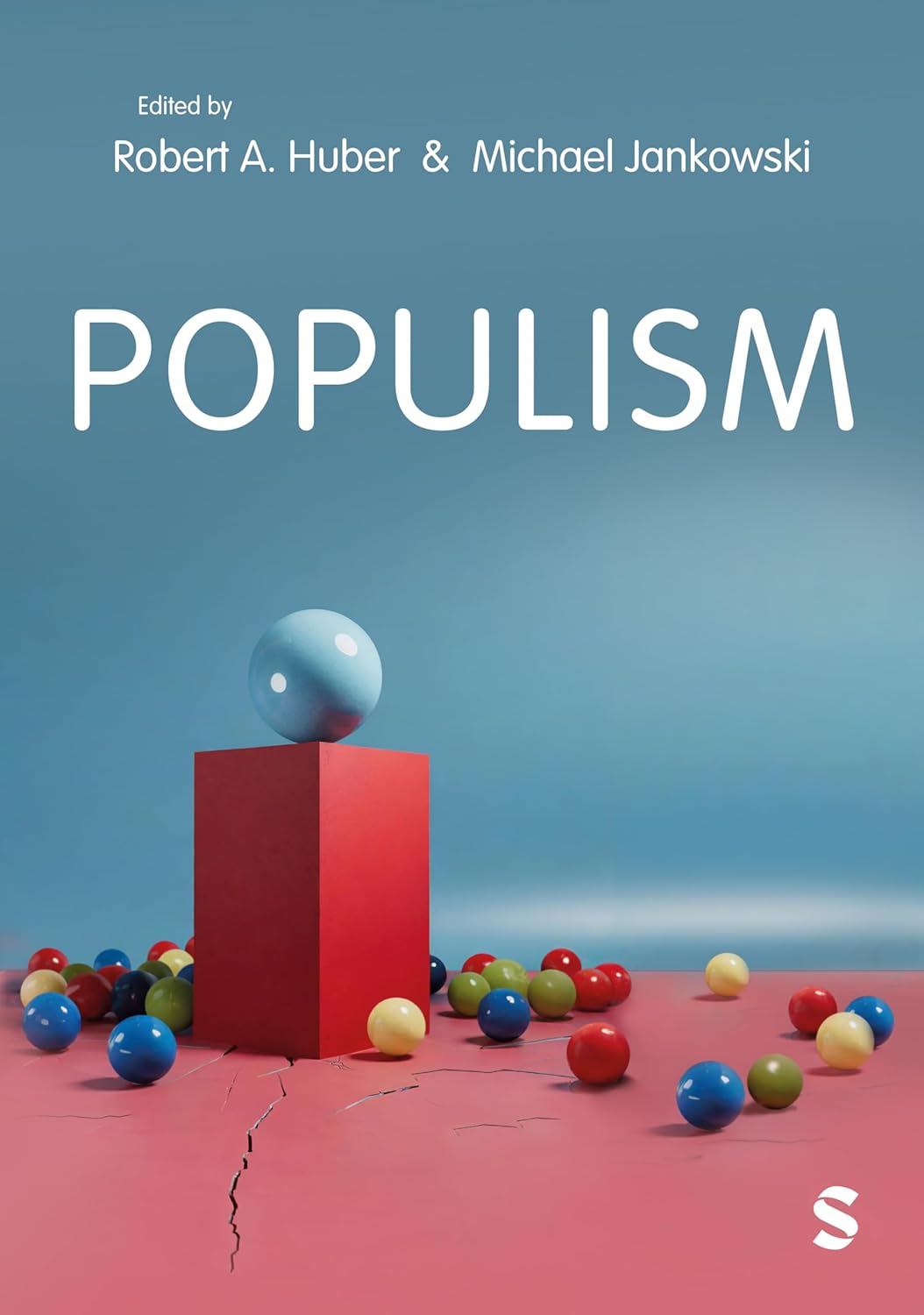
SAGE · 2025
Populism. An Introduction
Editor (with Robert A. Huber)
The first comprehensive textbook for teaching populism, emphasizing empirical research.
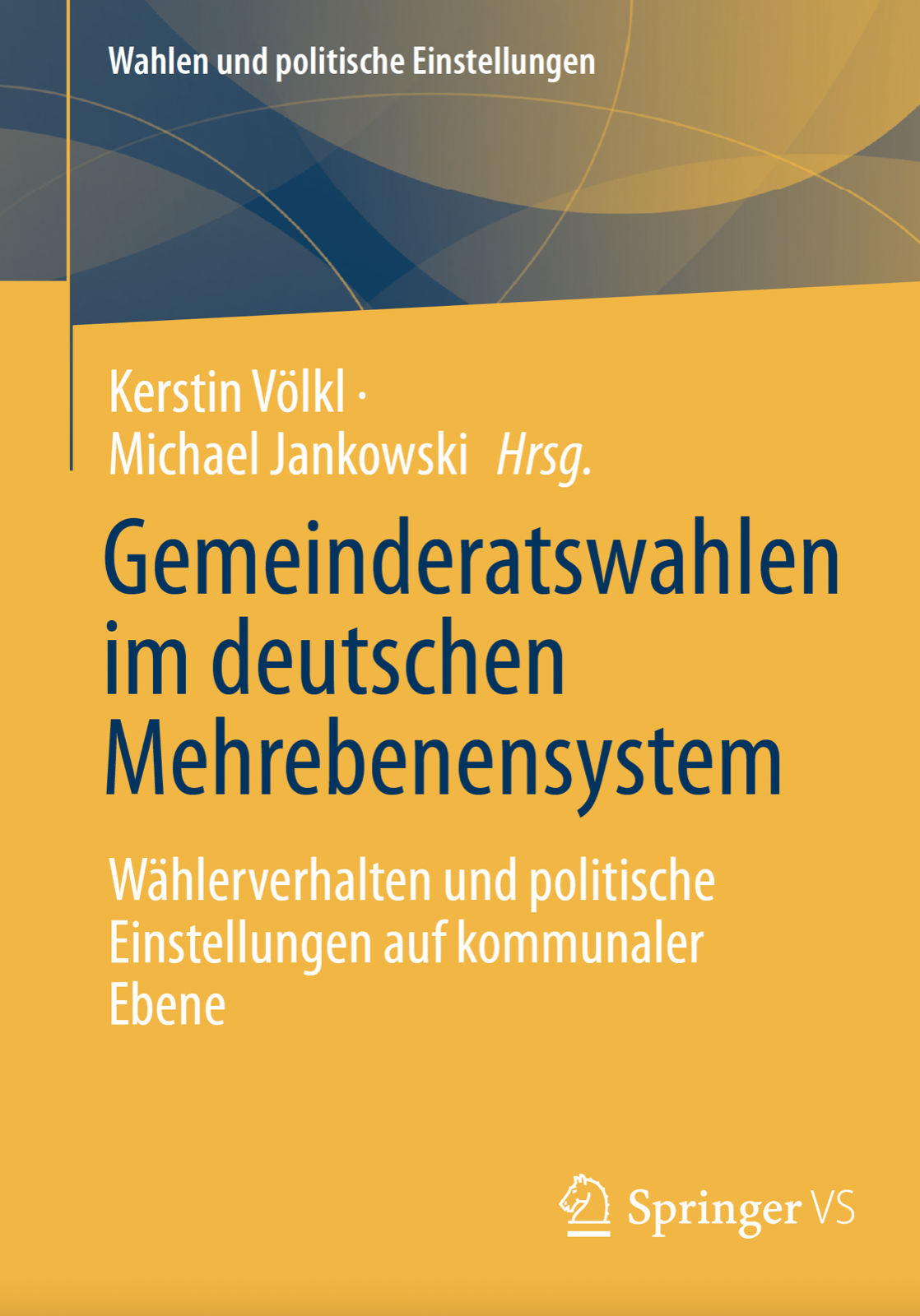
SpringerVS · 2025
Gemeinderatswahlen im deutschen Mehrebenensystem. Wählerverhalten und politische Einstellungen auf kommunaler Ebene.
Editor (with Kerstin Völkl)
A collection of novel analyses on voter attitudes and voting behavior in local elections.
Journal Articles

Journal of Experimental Political Science · 2025
Partners in Crime? The Effect of Partisan Group Composition and Depolarization on Collaborative Cheating
with Florian Erlbruch and Markus Tepe
TL;DR
We use a nice experimental design which allows for analyzing collaborative cheating. We combined this with a depolarization treatment and find that depolarization has no effect on honest behavior.
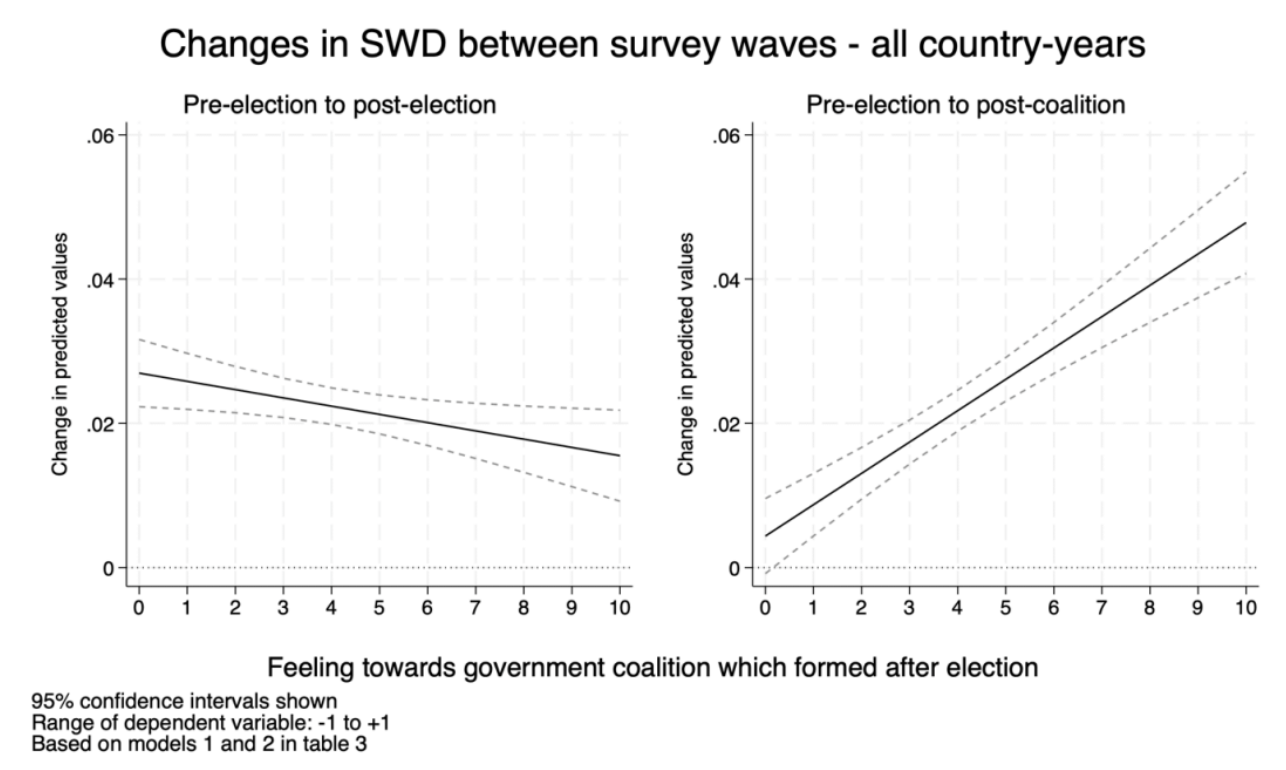
European Journal of Political Research · 2025
How Coalition Formation and Preferences Shape Satisfaction with Democracy
with David Willumsen and Simon Otjes
TL;DR
The standard winner-loser model of satisfaction with democracy classifiers winners and loser based on voting for the eventual governing coalition. However, voters may vote for a party but dislike the eventually formed coalition. We show that taking into account coalition preferences improves the standard model significantly. Moreover, we show that using multi-wave panel data provides crucial insights into these mechanisms.
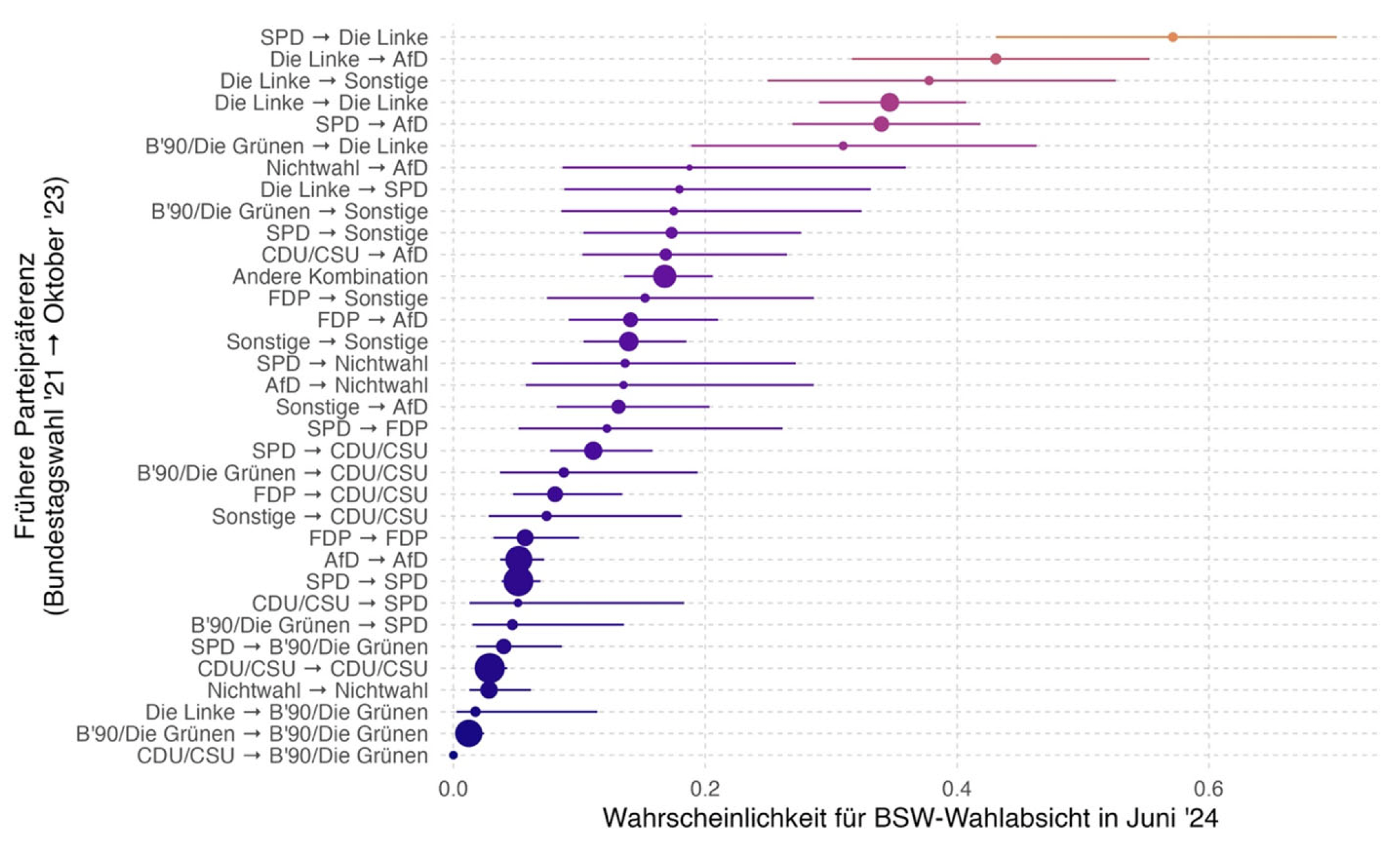
Politische Vierteljahresschrift · 2025
Das Schließen der Repräsentationslücke? Die Wählerschaft des Bündnis Sahra Wagenknecht – Eine Analyse basierend auf Paneldaten
TL;DR
Voters who switched to the BSW have always been culturally more conservative and more populist than other voters, even when they had similar voting patterns in the past. Most BSW voters have previously voted for Die Linke, SPD or AfD.
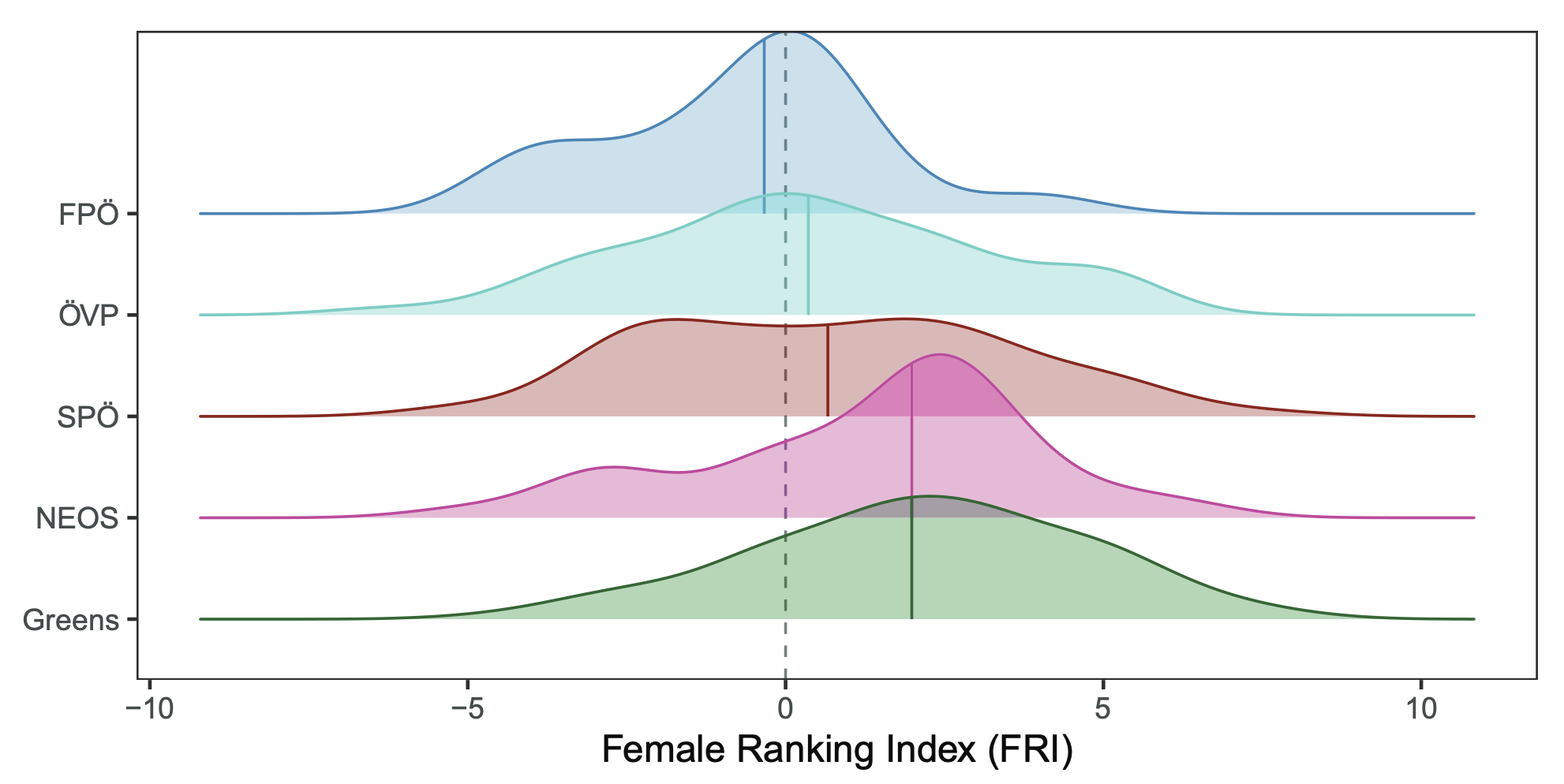
European Journal of Political Research · 2025
Selecting and Ranking Female Candidates Under PR: Evidence from a Two-Stage Conjoint Experiment
with Jochen Rehmert
TL;DR
Based on a novel conjoint design, we demonstrate that women are selected to top positions under PR. Moreover, when fewer women compete for list positions, then the remaining women are nominated to better list positions.
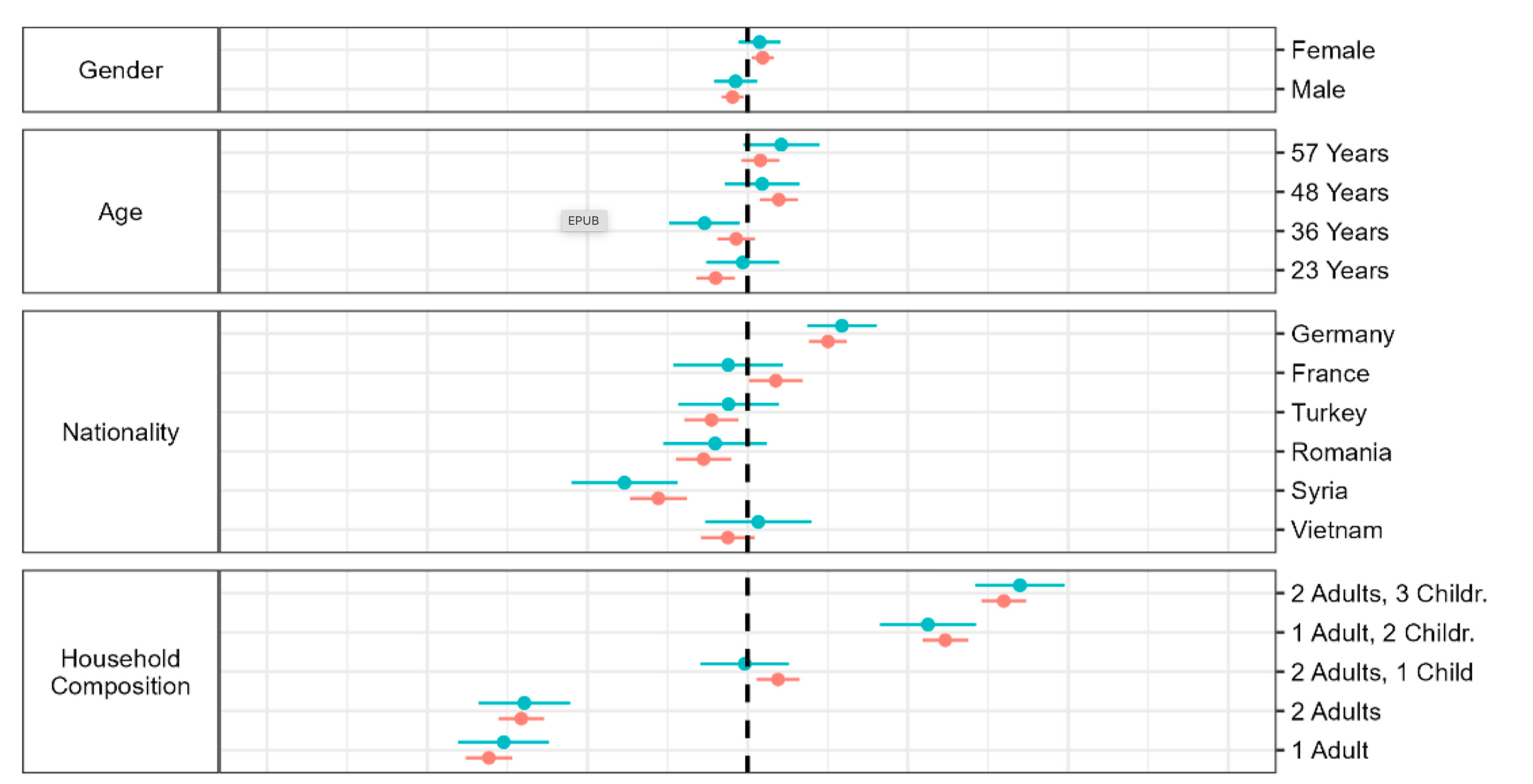
Public Policy and Administration · 2025
Prioritizing exceptional social needs. Experimental evidence on the role of discrimination and client deservingness in public employees' and citizens' discretionary behavior
with Brian Dietrich, Kai-Uwe Schnapp and Markus Tepe
TL;DR
Public employees and citizens show similar preferences when it comes to deservingness-based decision making. Discrimination exists but only to a small extent.
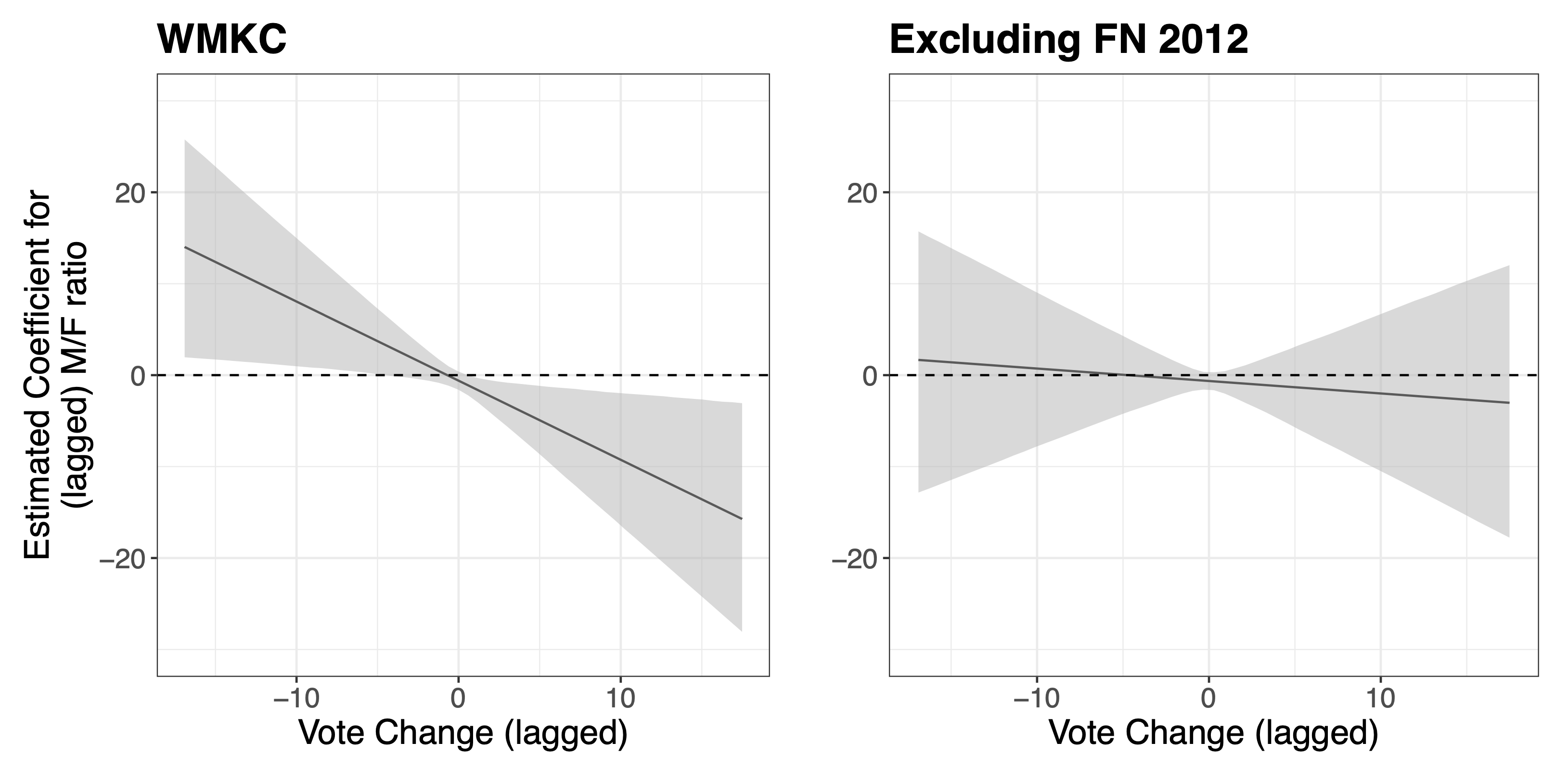
Institute 4 Replication · 2024
Do Populist Radical-Right Parties Use Descriptive Representation Strategically? A Replication of Weeks et al. (2023)
with Ben Guinaudeau
TL;DR
A study is not robust when the results depend on a single observation, even when you publish it in the APSR.
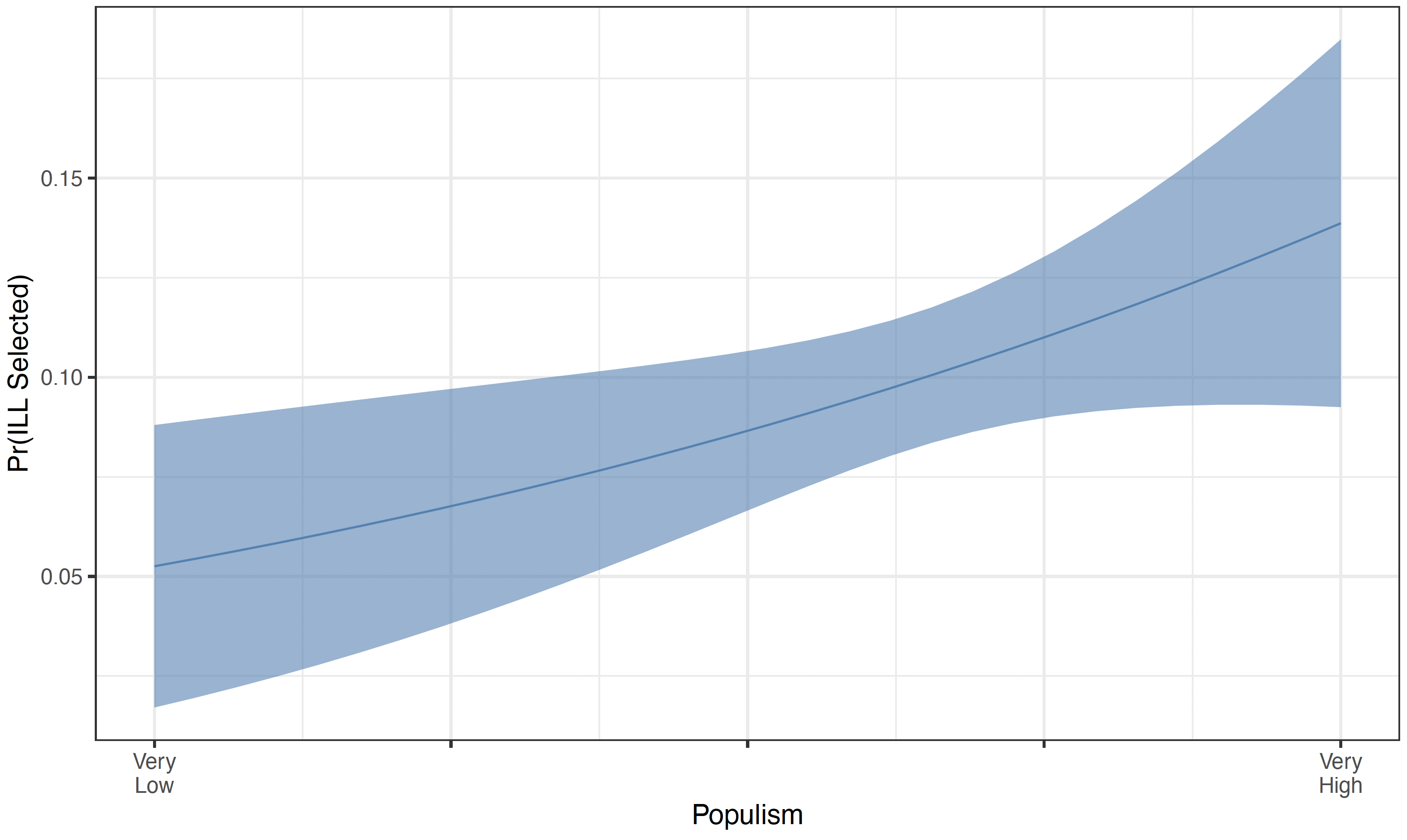
Journal of Elections, Public Opinion and Parties · 2024
Voting Against Parties: Populist Attitudes, Party Supply, and Support for Non-Partisan Actors
with Cristina-Marie Juen and Markus Tepe
TL;DR
Voters with higher levels of populist attitudes are more likely to vote for Independent Local Lists.
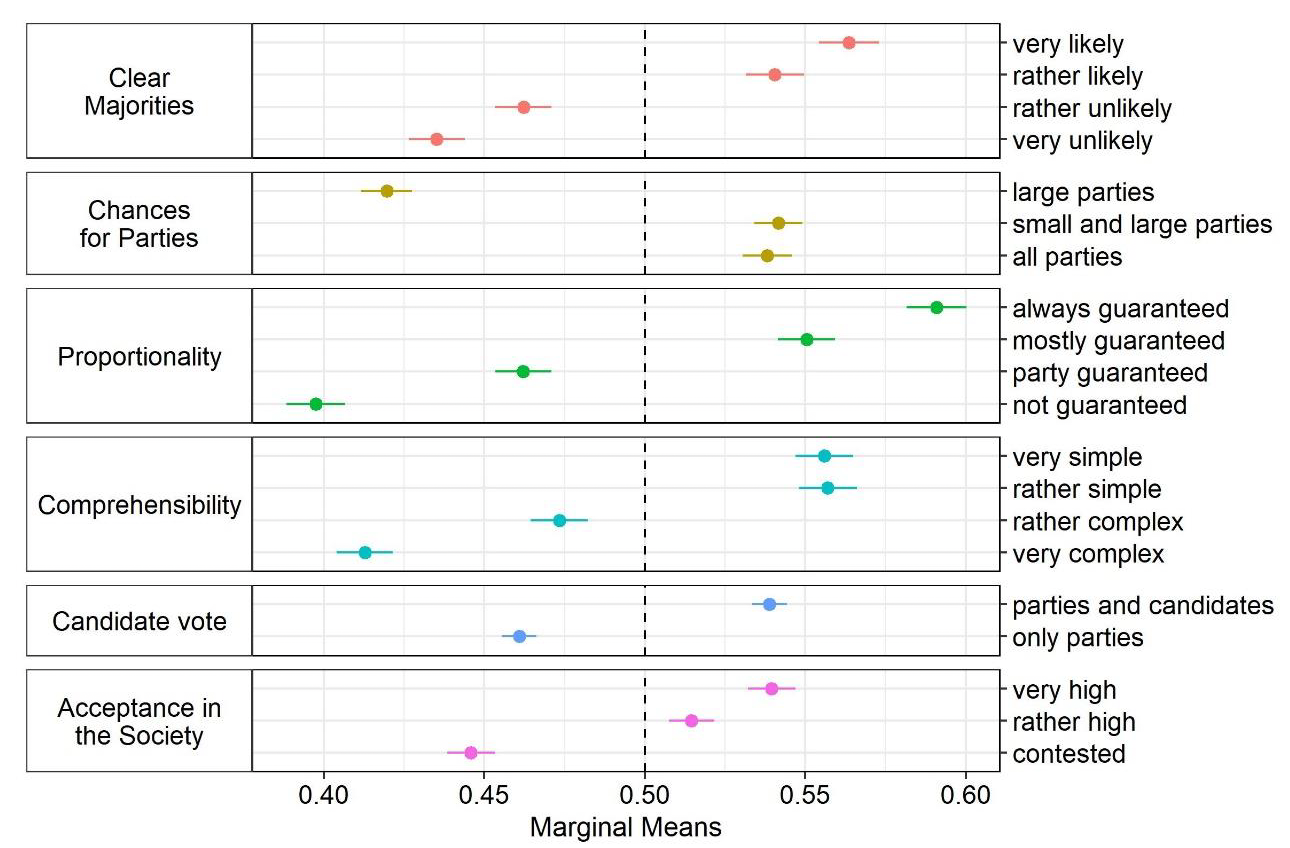
European Political Science Review · 2023
Electoral System Preferences of Citizens Compared: Evidence from a Conjoint Experiment in Germany, the Netherlands and the United Kingdom
with Eric Linhart and Markus Tepe
TL;DR
Voters really like proportional electoral systems, even when they live in the UK.
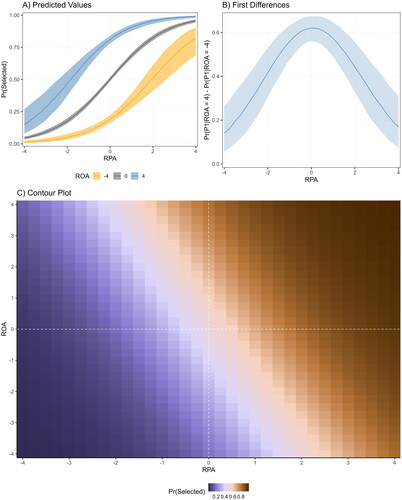
West European Politics · 2024
Do voters want their parties to be office- or policy-seekers in coalition negotiations?
with Martin Gross, Christina-Marie Juen and Florian Erlbruch
TL;DR
Voters want their parties to be primarily policy-seekers in coalition negotiations, but office-seeking can play an important role under certain circumstances.
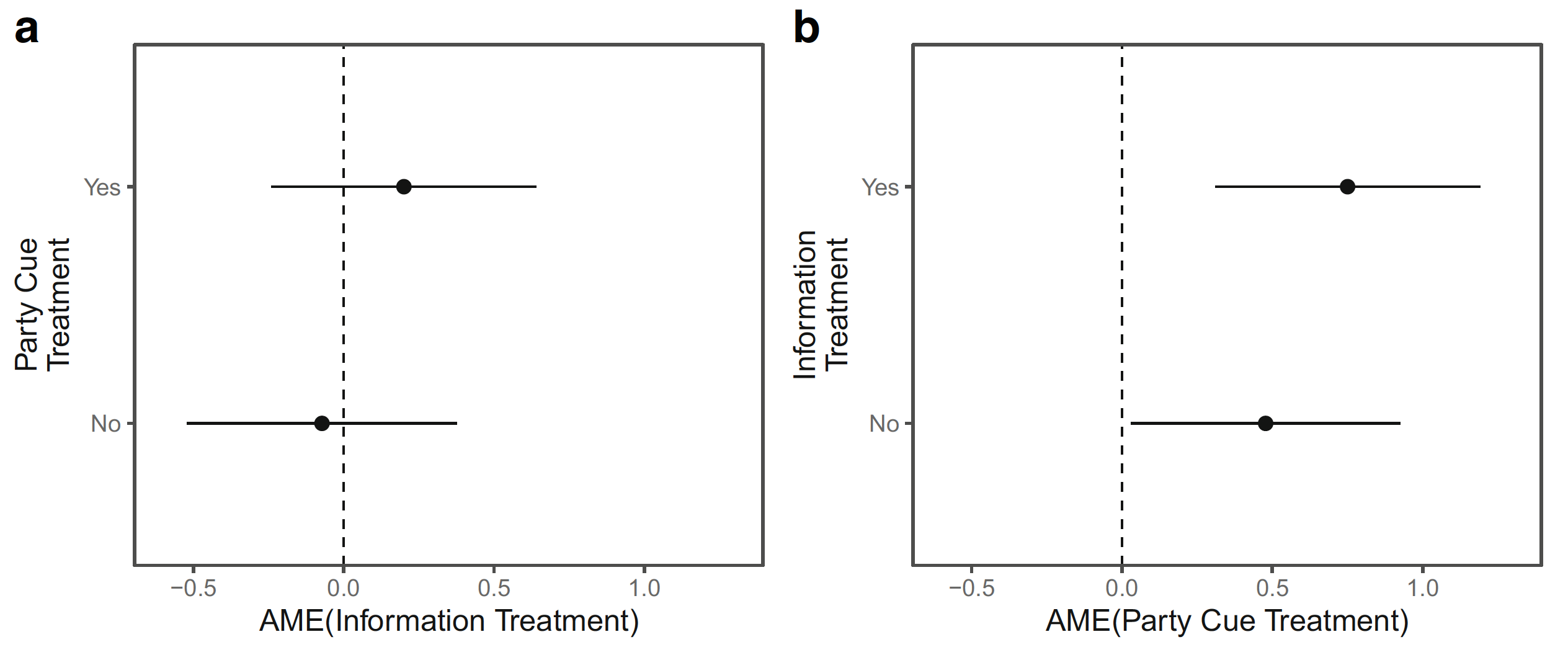
Politische Vierteljahresschrift · 2023
Support for strategic voting campaigns: Evidence from a survey experiment during the German General Election of 2021
TL;DR
Strategic voting campaigns by interest groups gain more support when they are supported by the affected parties.
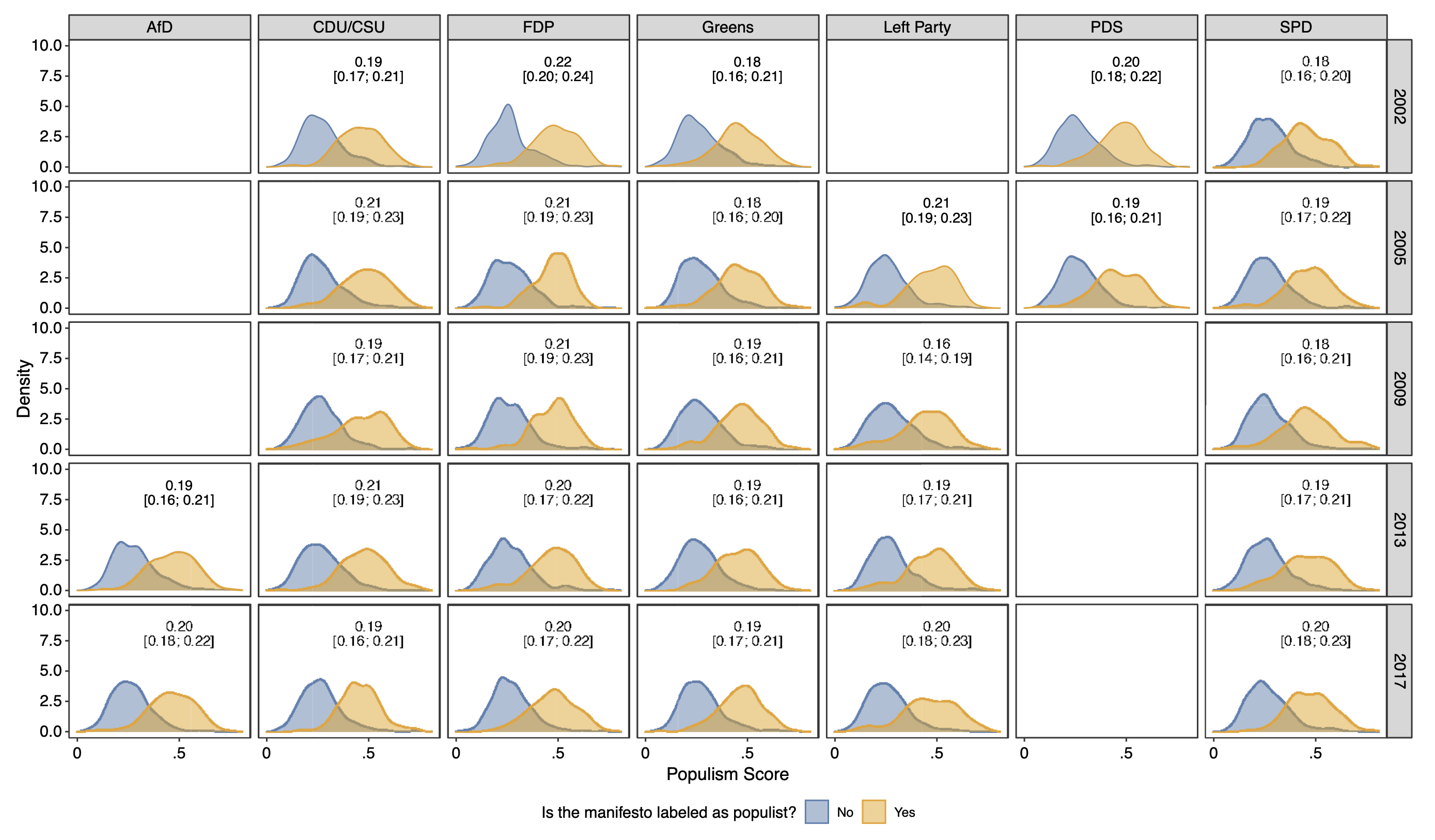
Political Analysis · 2023
When Correlation Is Not Enough: Validating Populism Scores from Supervised Machine-Learning Models
with Robert A. Huber
TL;DR
Assessing the validity of proxy-measures for theoretical concepts derived from machine-learning classification models only based on the F1 scores and correlations with other measures can be insufficient.
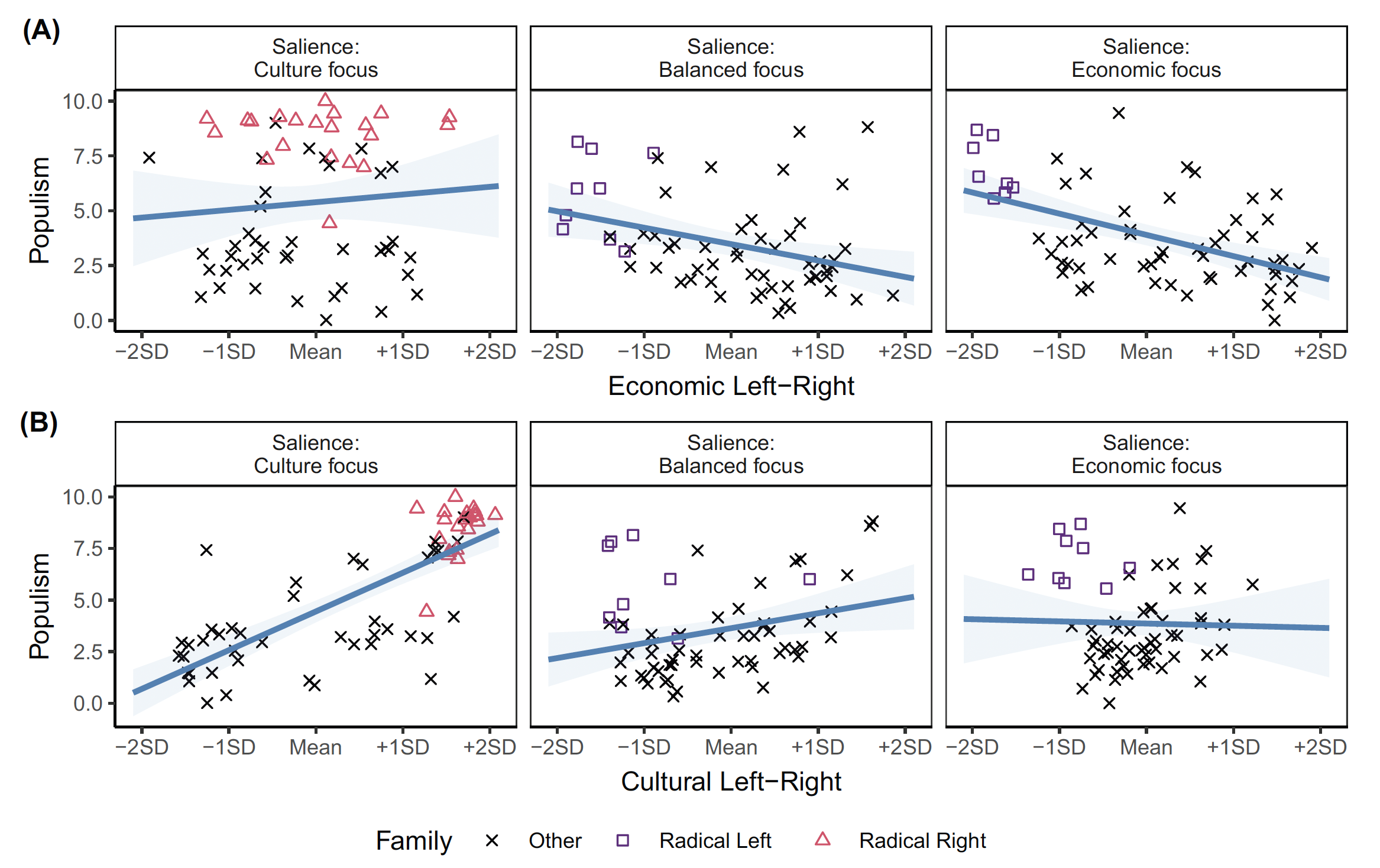
European Journal of Political Research · 2023
Populist Parties and the Two-Dimensional Policy Space
with Robert A. Huber and Christina-Marie Juen
TL;DR
Populist parties combine radical host ideologies with strong issue emphasis. Left-wing populism is about the economy, and right-wing populism about migration.
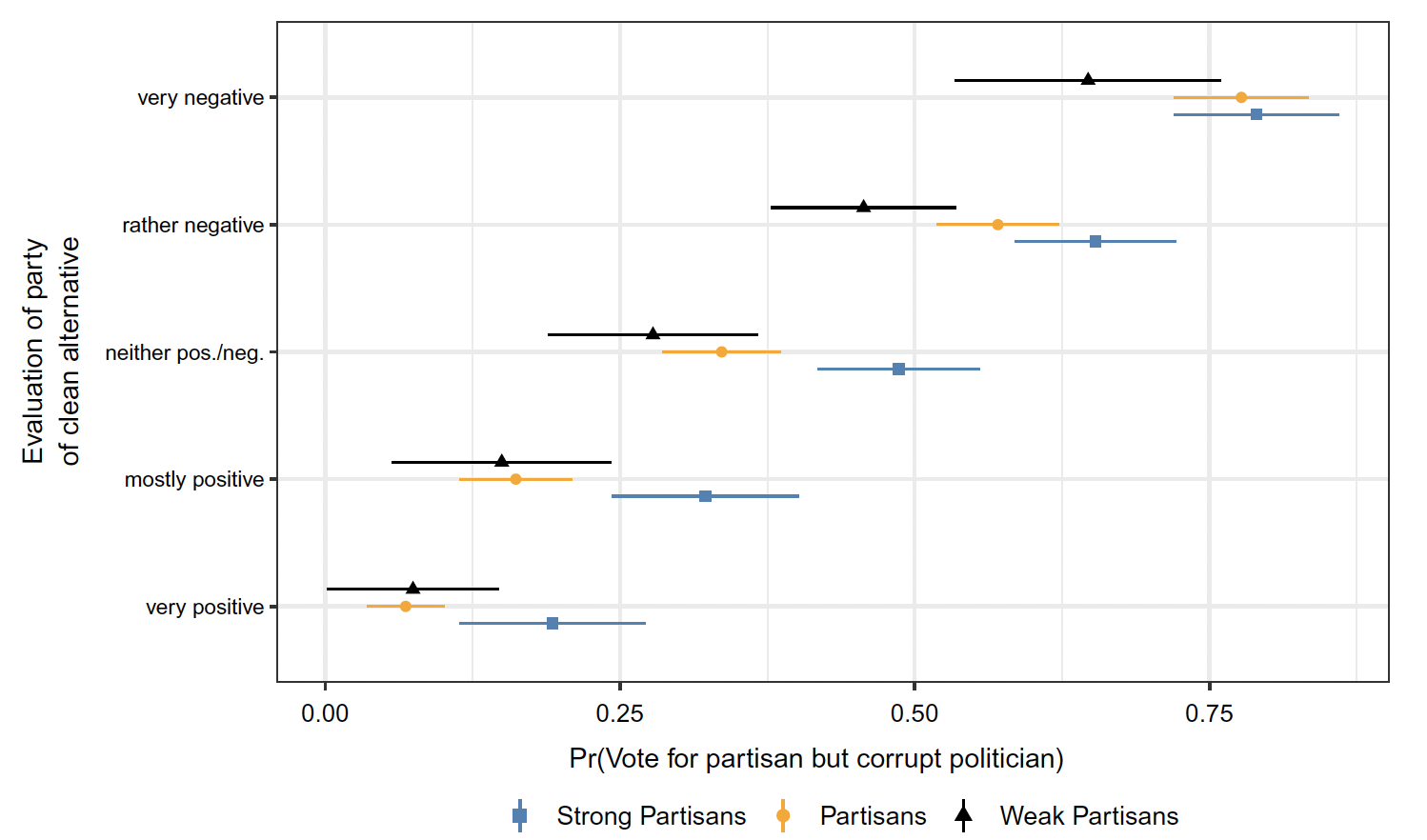
Acta Politica · 2023
Turning a blind eye on the black sheep. When are voters loyal to corrupt politicians?
with Christina-Marie Juen and Marcel Lewandowsky
TL;DR
Voters often do not punish corrupt politicians because they lack a clean viable alternative. This effect is particularly strong for voters of radical parties who often like only one party and, thus, are less likely to have a viable alternative.
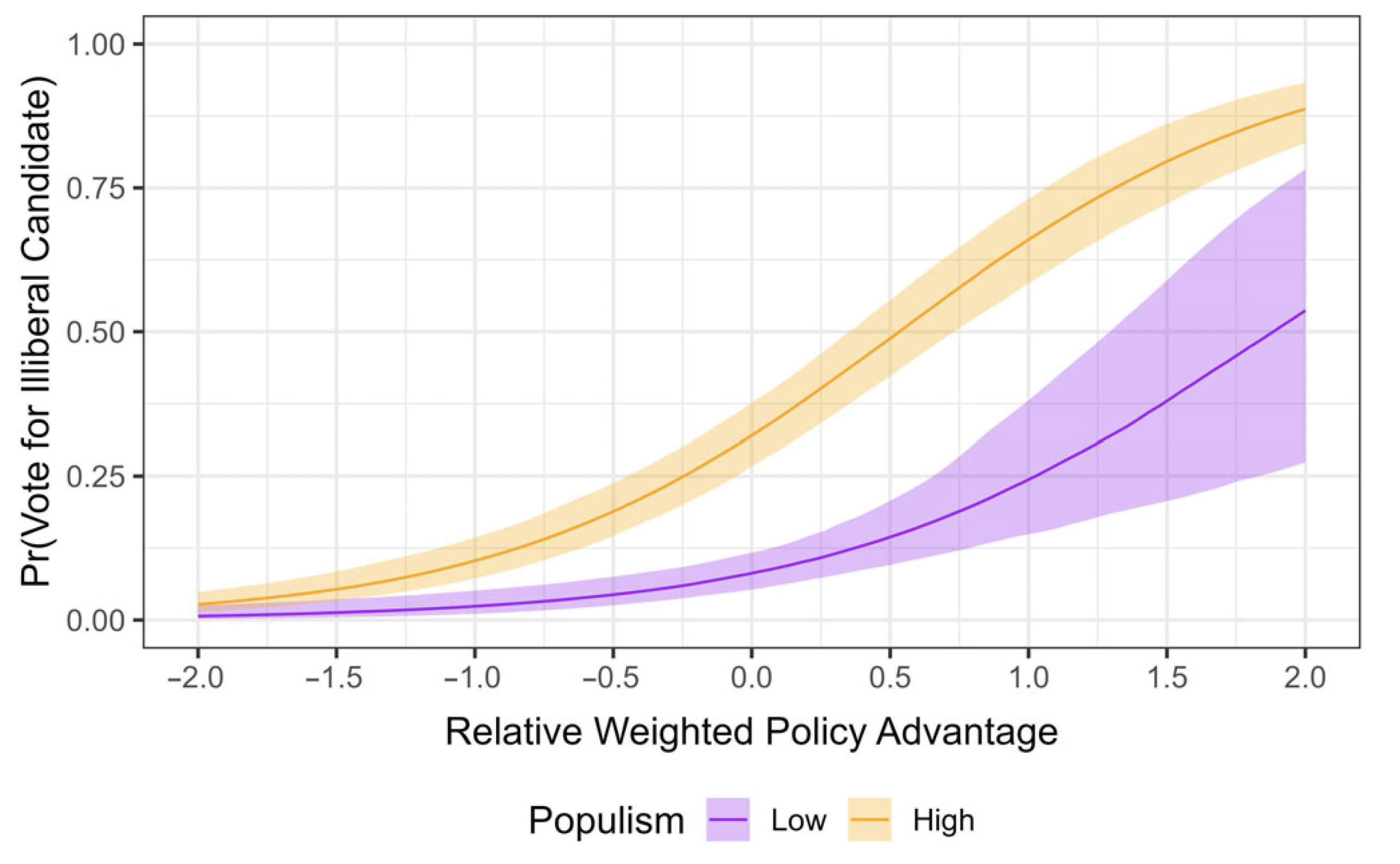
European Political Science Review · 2023
Sympathy for the devil? Voter support for illiberal politicians
with Marcel Lewandowsky
TL;DR
We know that some voters trade-off policy congruence against adherence to democratic principles when selecting candidates. We demonstrate that populist and authoritarian voters are particularly likely to do so, while less populist/authoritarian voters do not trade-off these concepts so easily.
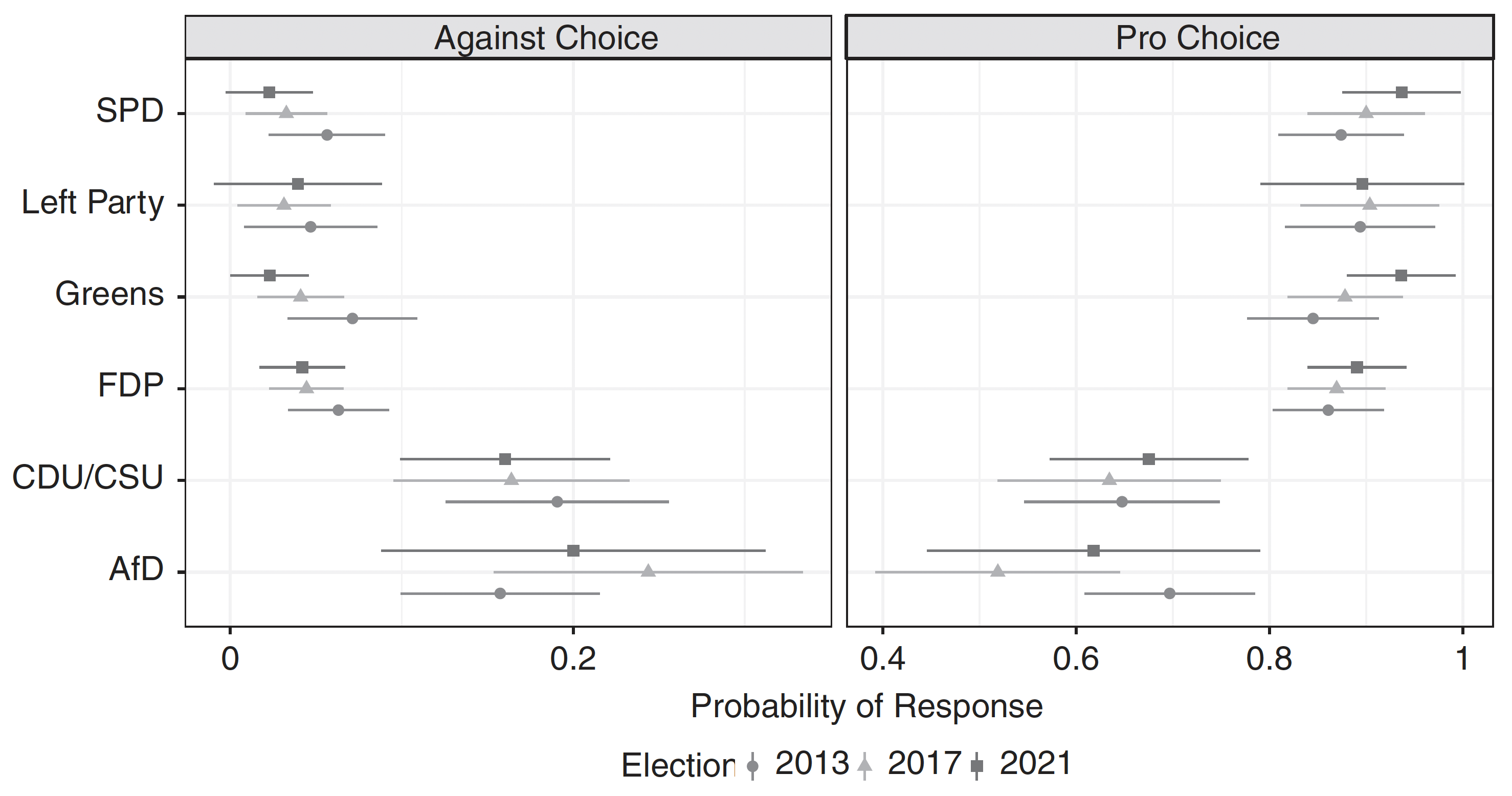
European Journal of Politics and Gender · 2023
Slowly adopting: The impact of same-sex marriage legalization on the attitudes of parliamentary candidates in Germany
TL;DR
For decades, CDU/CSU candidates opposed same-sex marriage. However, after its legislation, the attitudes of many CDU/CSU candidates on this topic have changed and their opposition to same-sex marriage crumbles.
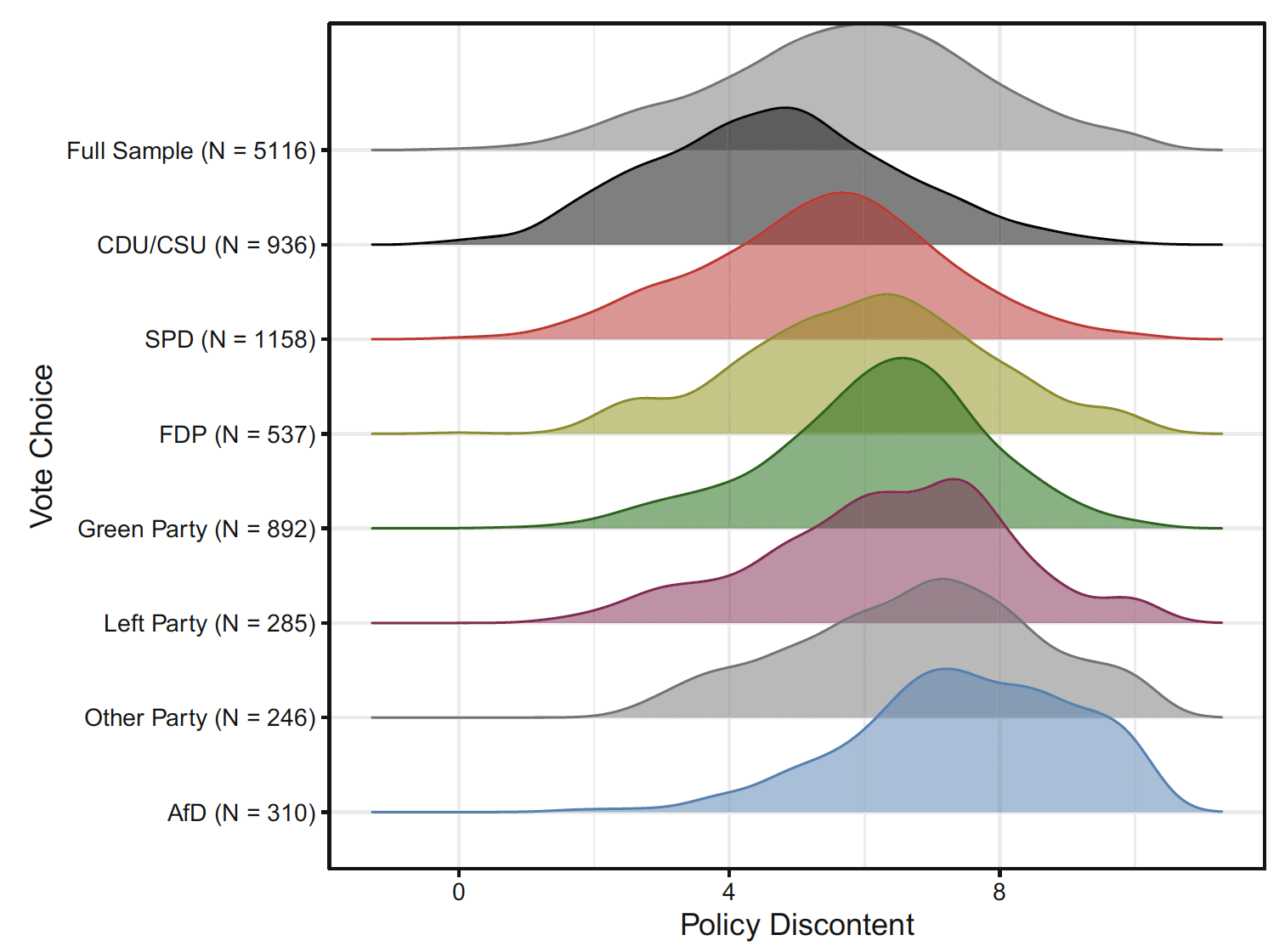
Politische Vierteljahresschrift · 2023
Explaining Populist Attitudes: The Impact of Issue Specific Discontent and Representation
with Robert A. Huber and Carsten Wegscheider
TL;DR
Populist attitudes and discontent with a perceived lack of representation in salient policy domains are strongly connected. This holds also for supporters of non-populist parties.
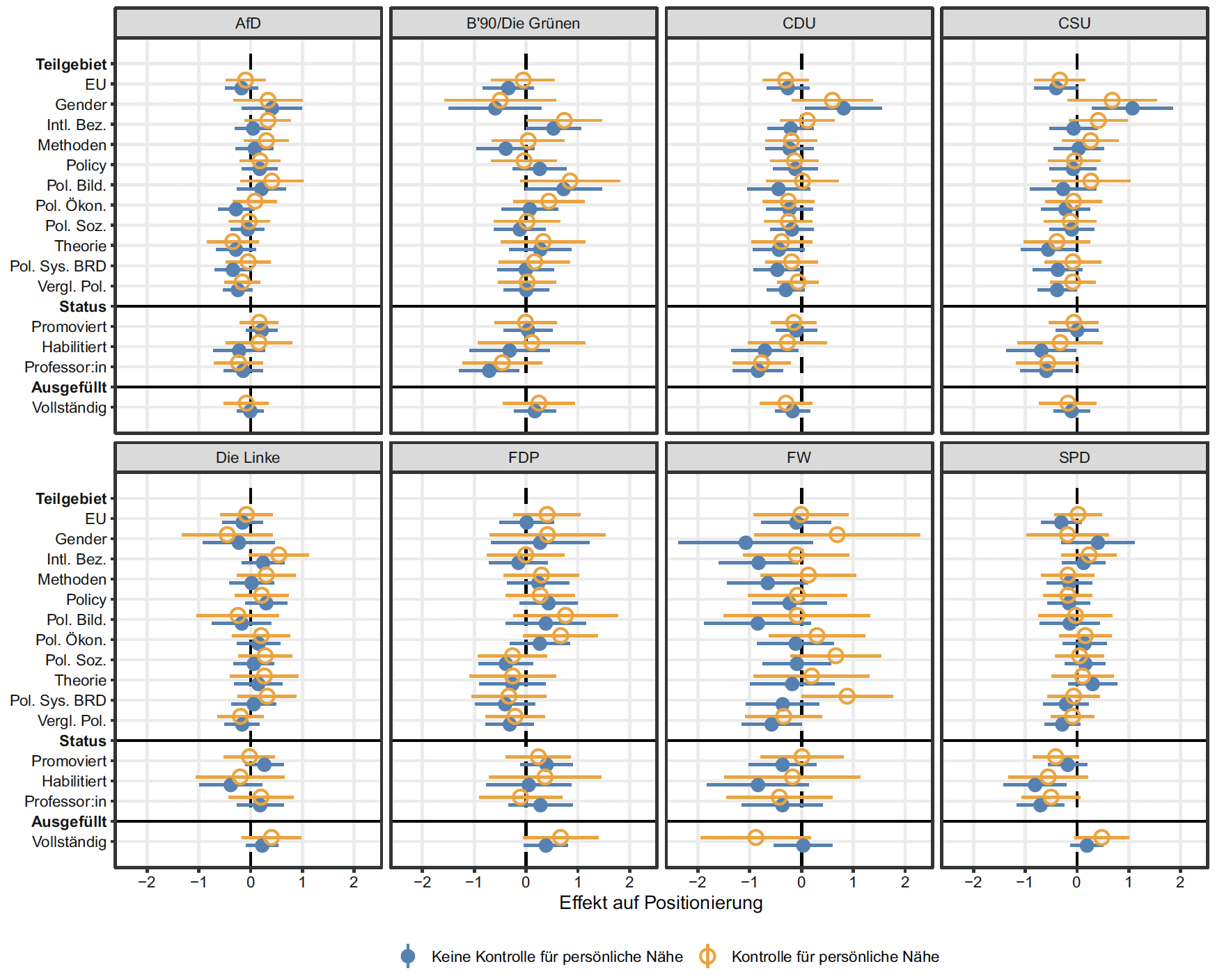
Politische Vierteljahresschrift · 2022
Die Positionen der Parteien zur Bundestagswahl 2021: Ergebnisse des Open Expert Surveys
with Anna-Sophie Kurella, Christian Stecker, et al.
TL;DR
We asked hundreds of German political scientists to position parties on various political dimensions. This works well and provides interesting data for the research community.
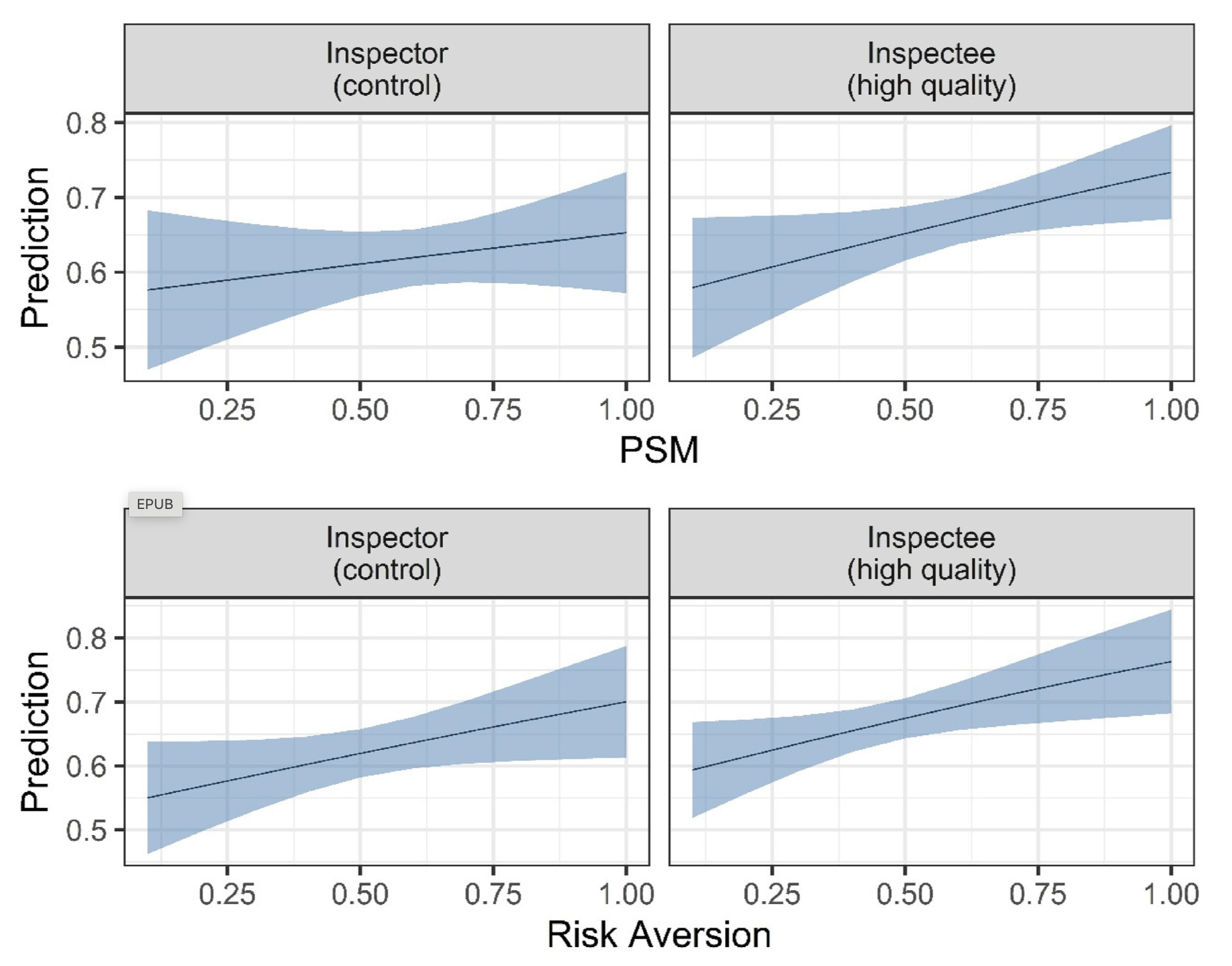
International Review of Administrative Sciences · 2023
Administrative delegation revisited: Experimental evidence on the behavioural consequences of public service motivation and risk aversion
with Maximilian Lutz, Susumu Shikano and Markus Tepe
TL;DR
The promise of new public management that oversight issues in administrative delegation disappear with setting appropriate extrinsic incentives is too simplistic.
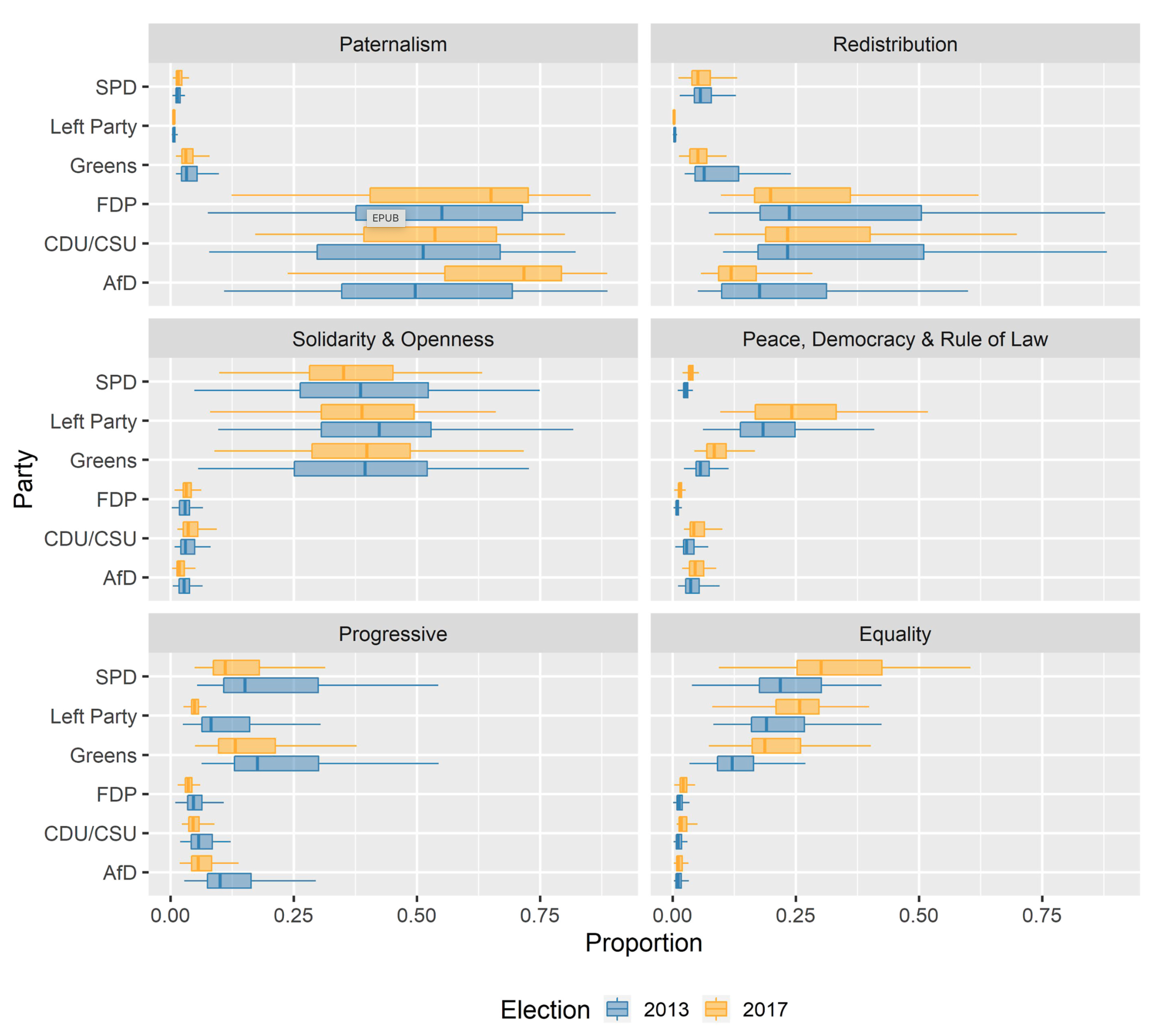
Party Politics · 2023
How stable are 'left' and 'right'? A morphological analysis using open-ended survey responses of parliamentary candidates
with Sebastian Schneider and Markus Tepe
TL;DR
Using open-response data from parliamentary candidates, we find that the core meaning of 'left' and 'right' remains stable over time. However, concepts loosely associated with these terms change based on salient policy issues.
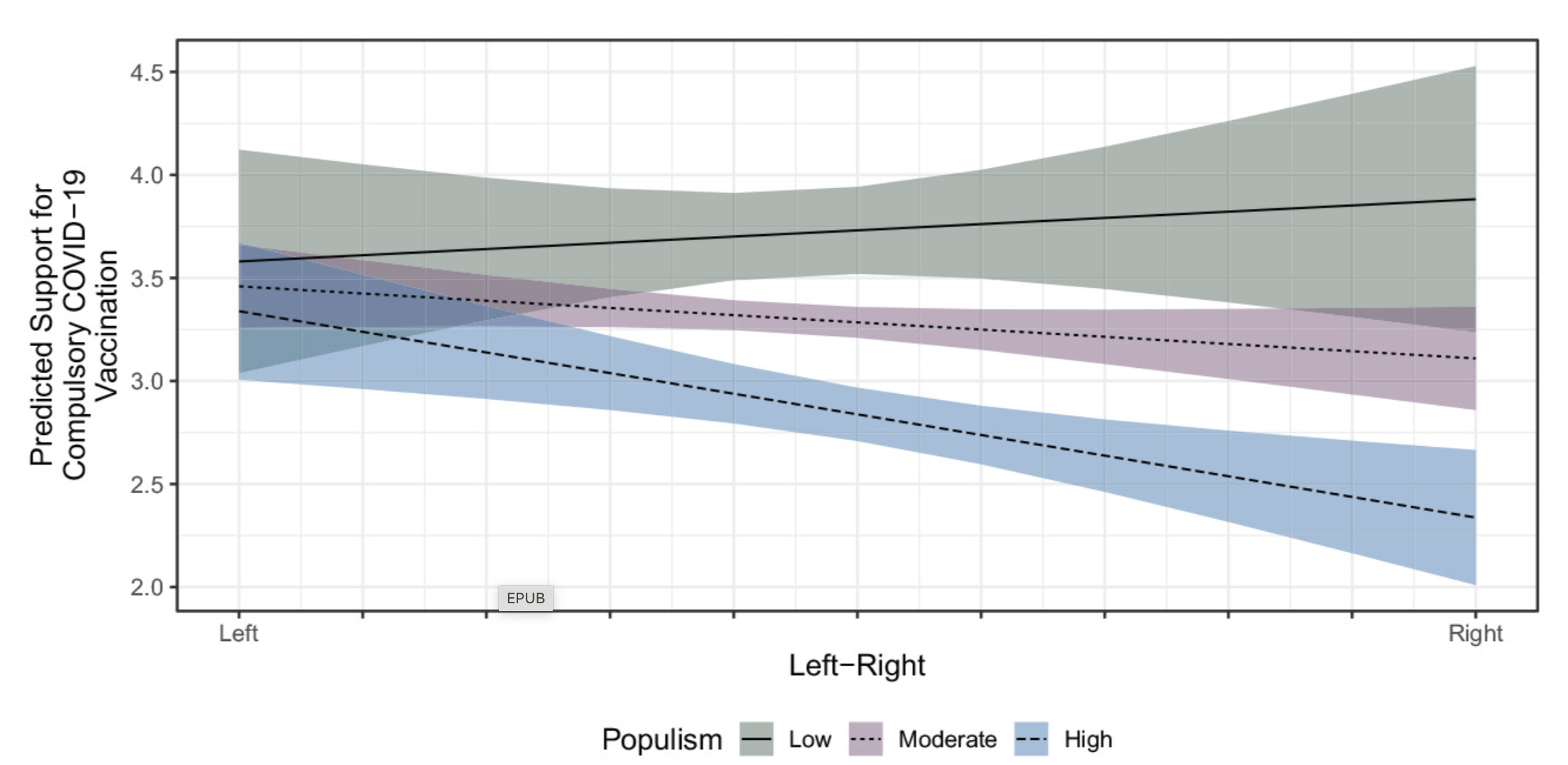
Politics · 2023
Who wants COVID-19 Vaccination to be Compulsory? The Impact of Party Cues, Left-Right Ideology and Populism
with Christina-Marie Juen, Robert A. Huber, Markus Tepe, Torren Frank and Leena Maaß
TL;DR
During COVID-19, Germany discussed compulsory vaccination programs. We find that in-party cues and expert cues decrease support for compulsory vaccination. Populist attitudes, in combination with left-right positions, also play a role.
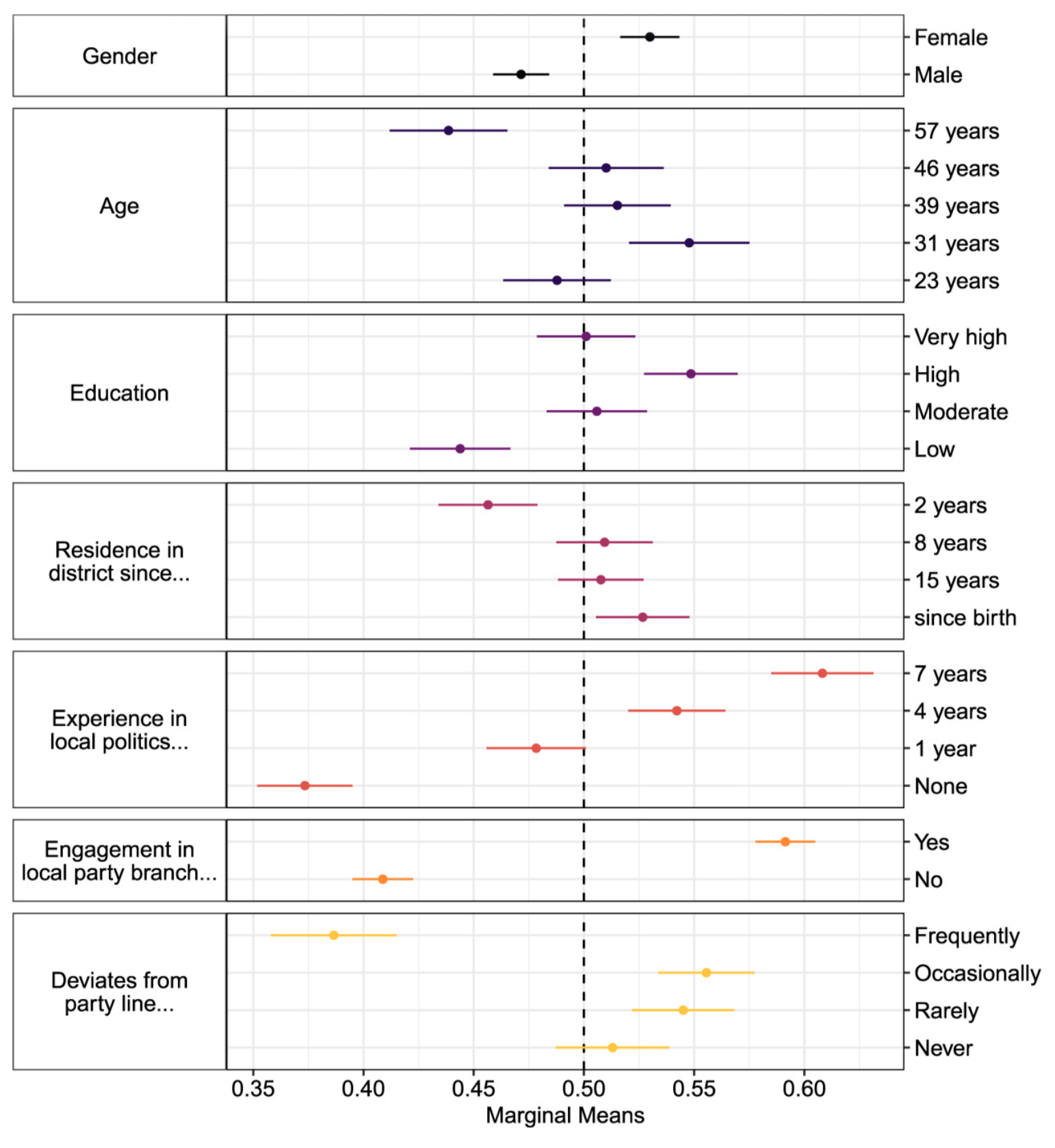
Party Politics · 2022
Local preferences in candidate selection. Evidence from a Conjoint Experiment among party leaders in Germany
with Jan Berz
TL;DR
Local experience is the most important dimension for local party elites when selecting candidates. Socio-demographic factors are less important but still matter.
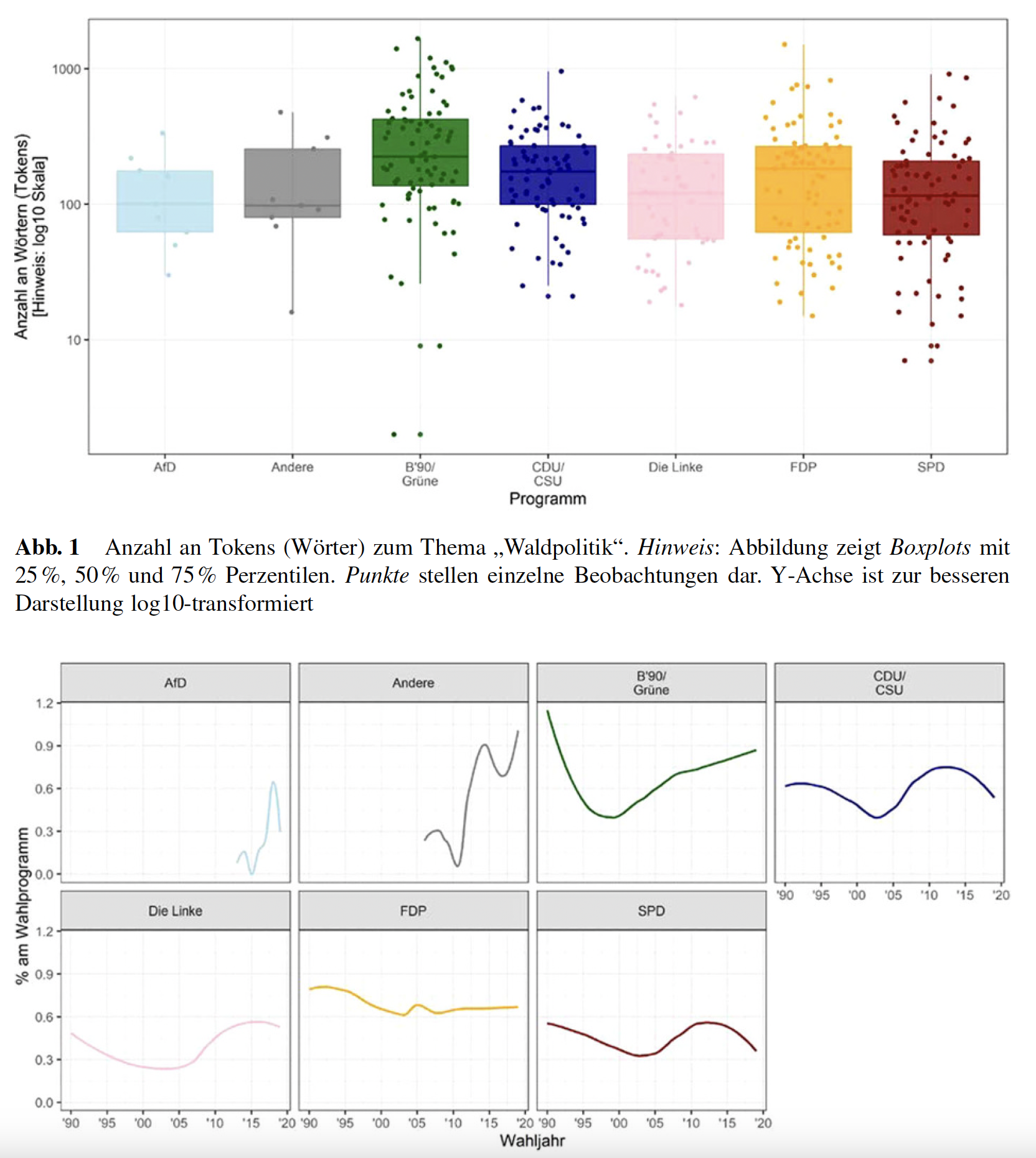
Zeitschrift für Vergleichende Politikwissenschaft · 2022
Parteiendifferenz in der Wald- und Forstpolitik. Eine Analyse der deutschen Bundesländer
with Ulrich Hartung and Jochen Müller
TL;DR
We use quantitative text analysis to highlight that party branches in different federal states take different positions in forest policy.
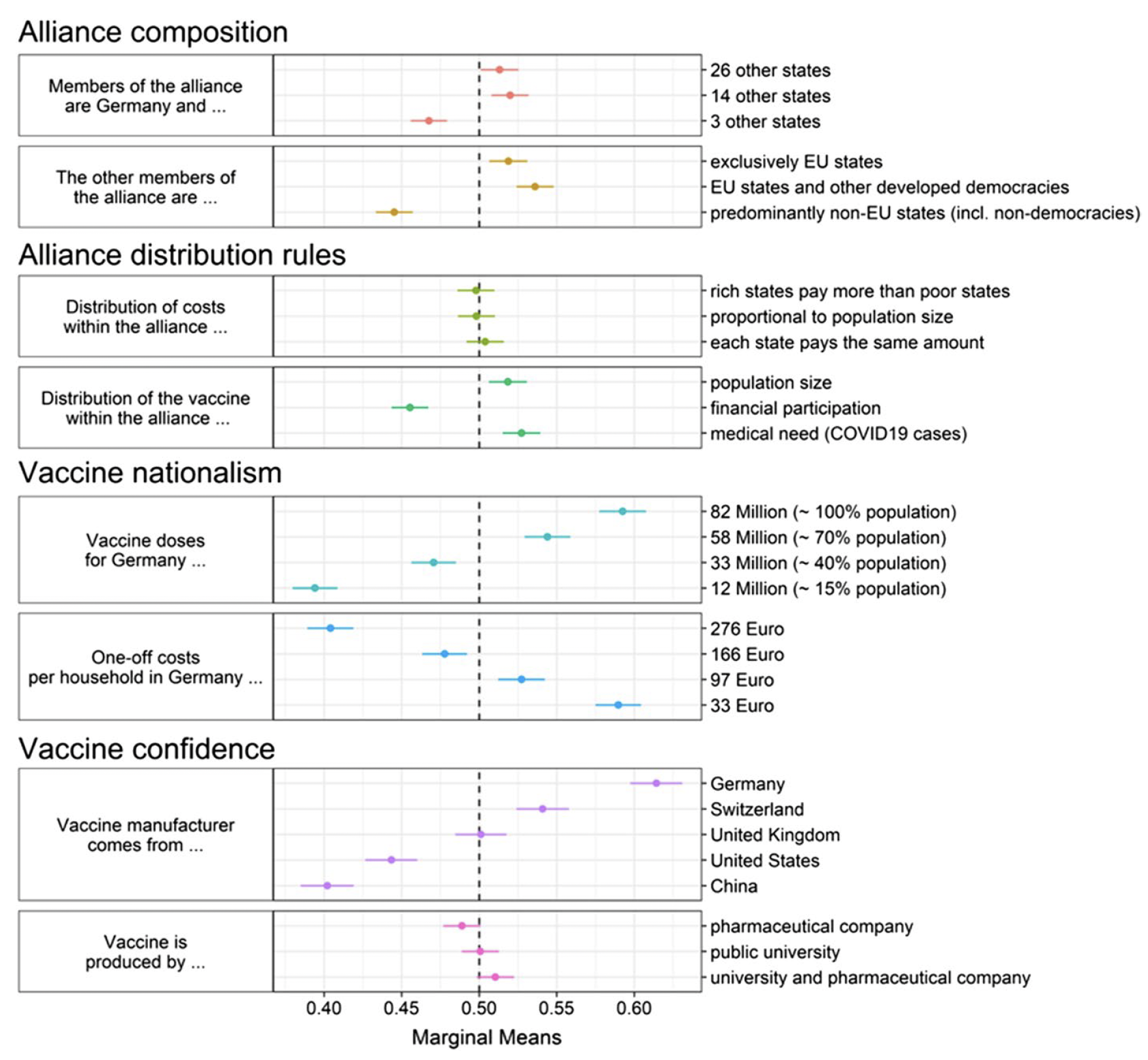
Policy Sciences · 2022
Vaccine Alliance Building Blocks: A Conjoint Experiment on Popular Support for International COVID-19 Cooperation Formats
with Pieter Vanhuysse and Markus Tepe
TL;DR
Germans have very nationalistic design preferences for the design of international vaccine allocation and distribution institutions.
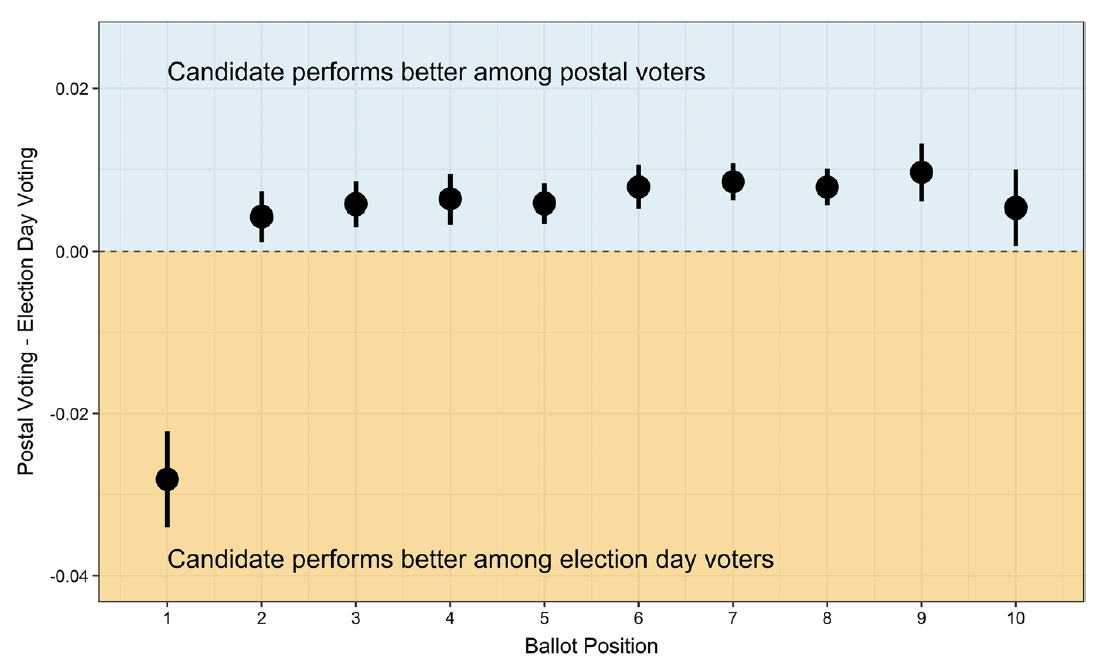
Acta Politica · 2022
Ballot Position Effects in Open-List PR Systems: The Moderating Effect of Postal Voting
with Torren Frank
TL;DR
Ballot position effects in open-list PR systems are weaker among postal voters compared to in-person (election day) voters.
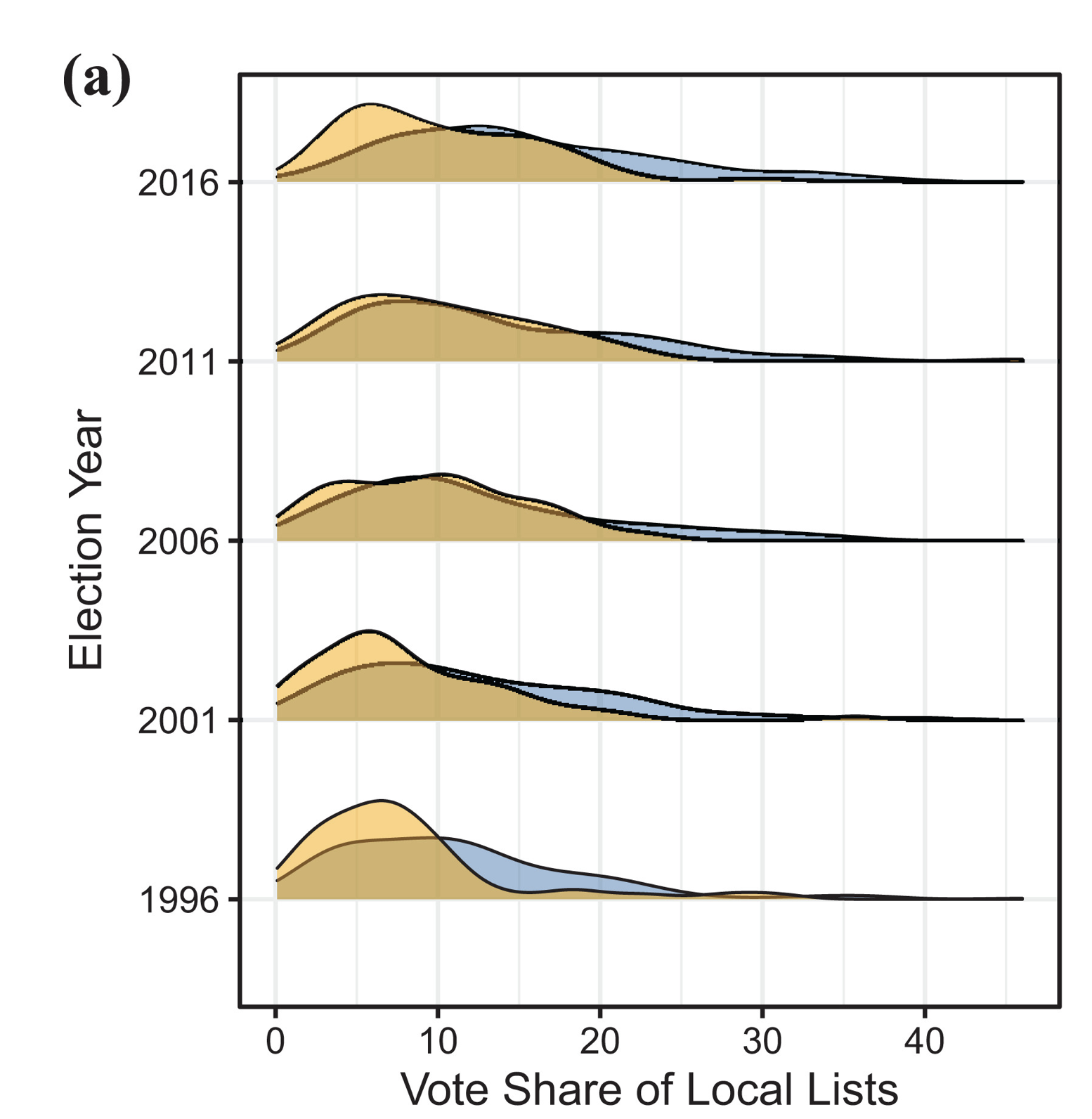
Party Politics · 2022
The Impact of Anti-Establishment Parties on the Electoral Success of Independent Local Lists: Evidence from Germany
with Christina-Marie Juen and Markus Tepe
TL;DR
Independent local lists' election results are strongly affected by the presence of national anti-establishment parties in the municipality.
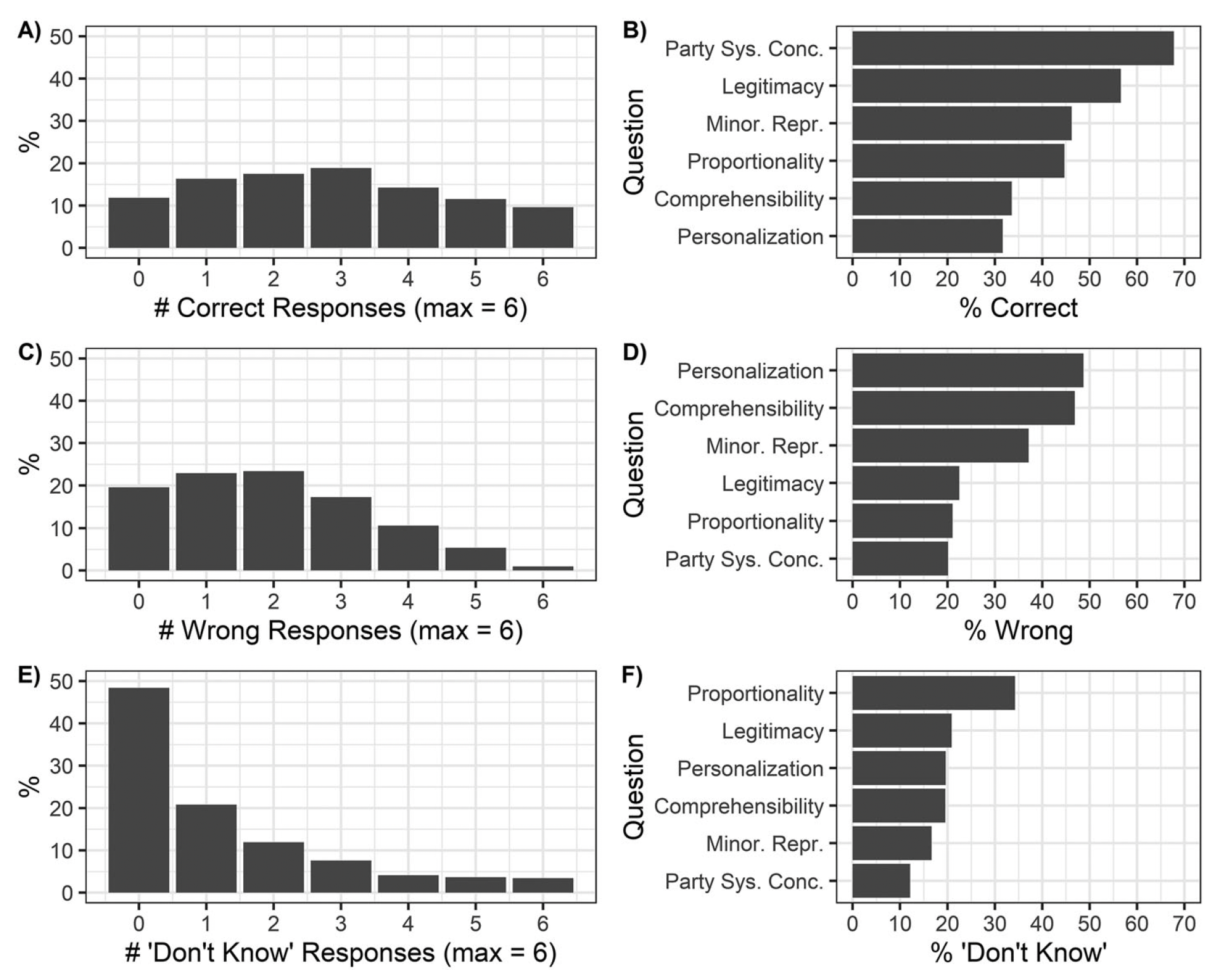
German Politics · 2022
Keep it simple! German voters' limited competence to evaluate electoral systems' functions
with Eric Linhart and Markus Tepe
TL;DR
When you reform an electoral system, you try to balance trade-offs and make the whole thing incredibly complex. That's bad for voters who usually don't understand these systems very well.
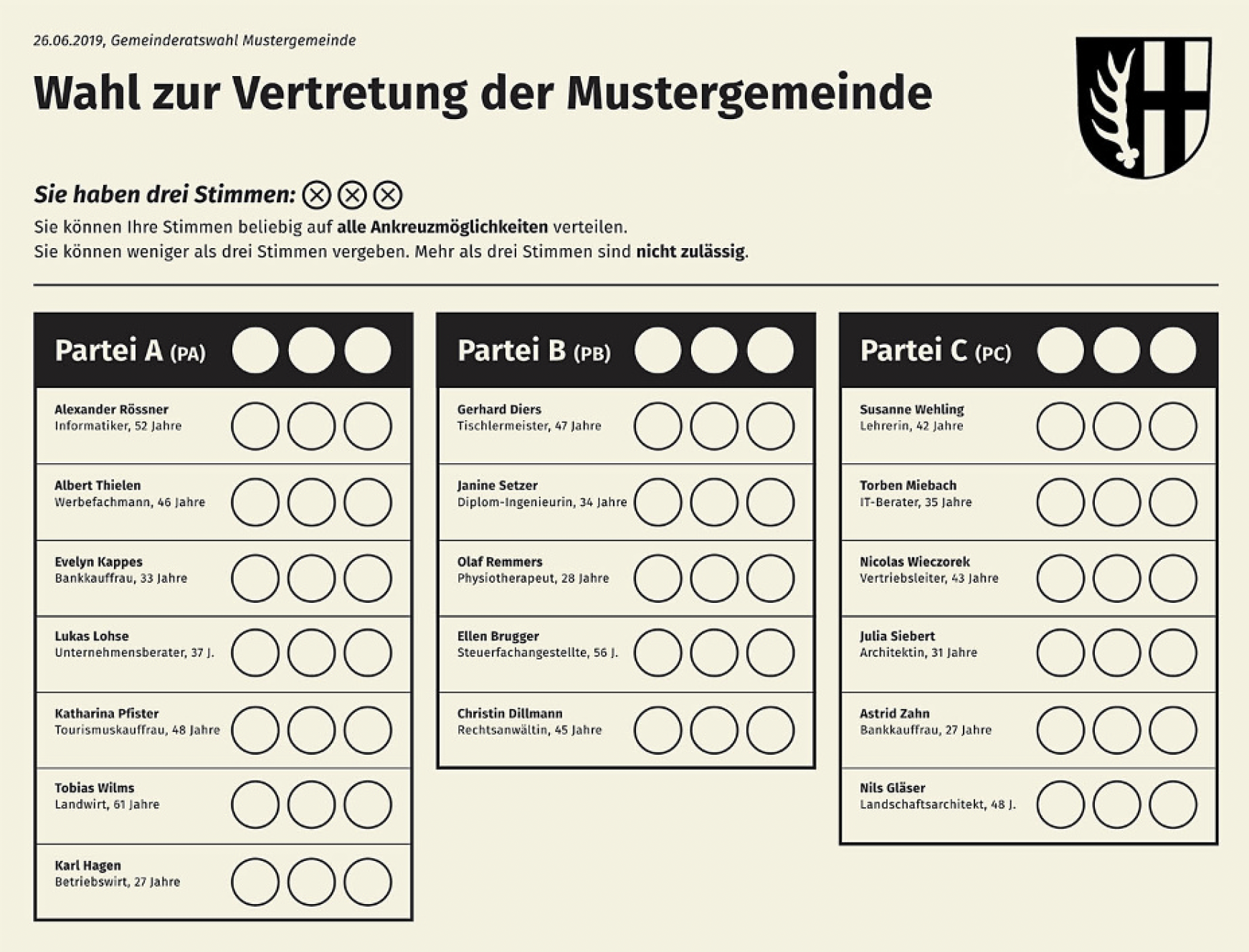
Politische Vierteljahresschrift · 2021
Stimmzettel nutzerfreundlicher gestalten: Empfehlungen auf Grundlage eines Survey-Experiments
with Dominic Nyhuis, Felix Münchow, Morten Harmening, Jannik Bruns, Max Holly, Josip Karacic and Christoph Hönnige
TL;DR
There is lots of room for improvement in the design of ballot papers in municipal elections.
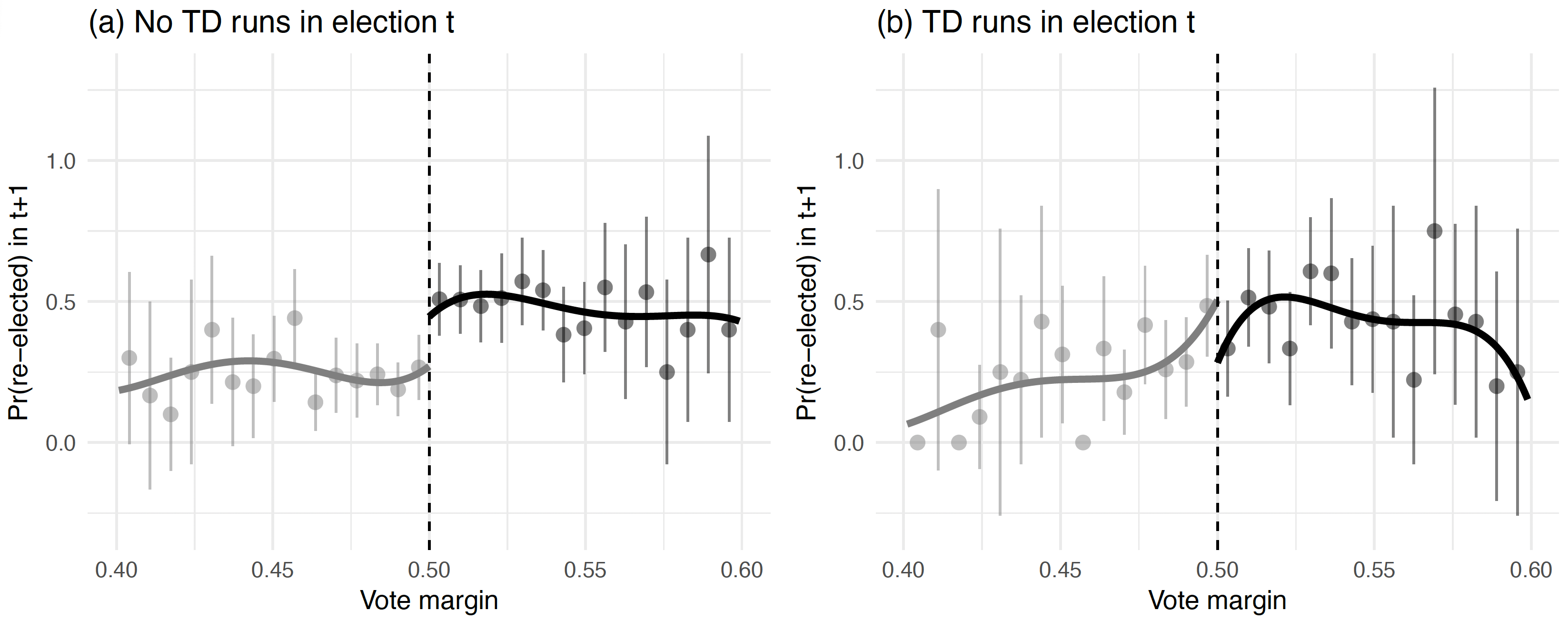
Electoral Studies · 2021
The Incumbency Advantage in Second-Order PR Elections: Evidence from the Irish Context, 1942-2019
with Stefan Müller
TL;DR
Contrary to some assumptions in the literature, the incumbency advantage is just as strong in local elections as in national elections.
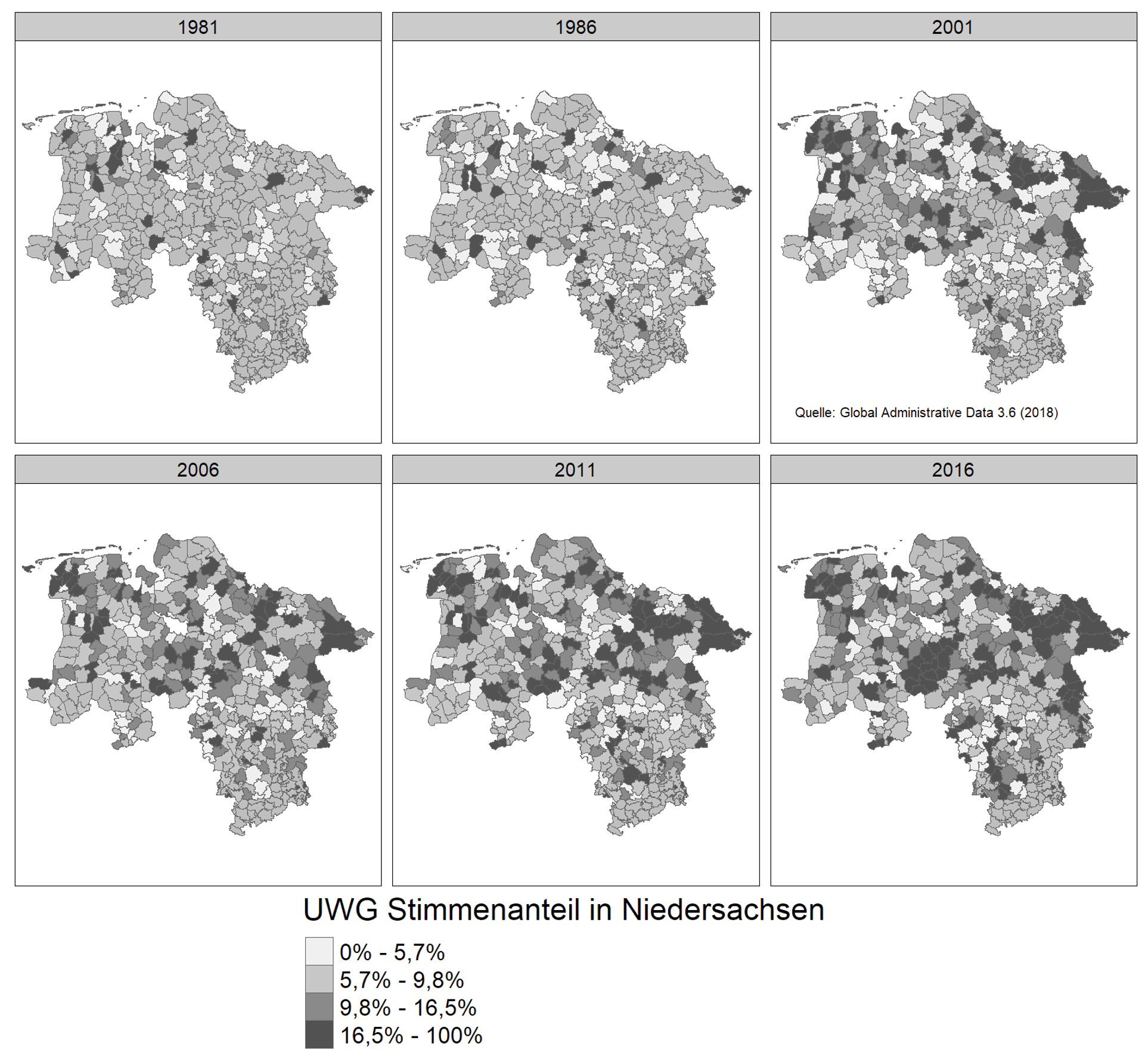
Zeitschrift für Parlamentsfragen · 2021
Abstiegserfahrungen in der Kommune und der Aufstieg Unabhängiger Wählergemeinschaften. Neue Befunde aus einem Mehrebenen-Kommunalwahlpanel
with Christina-Marie Juen and Markus Tepe
TL;DR
In municipalities with worsening socio-structural developments, independent local lists are electorally more successful.
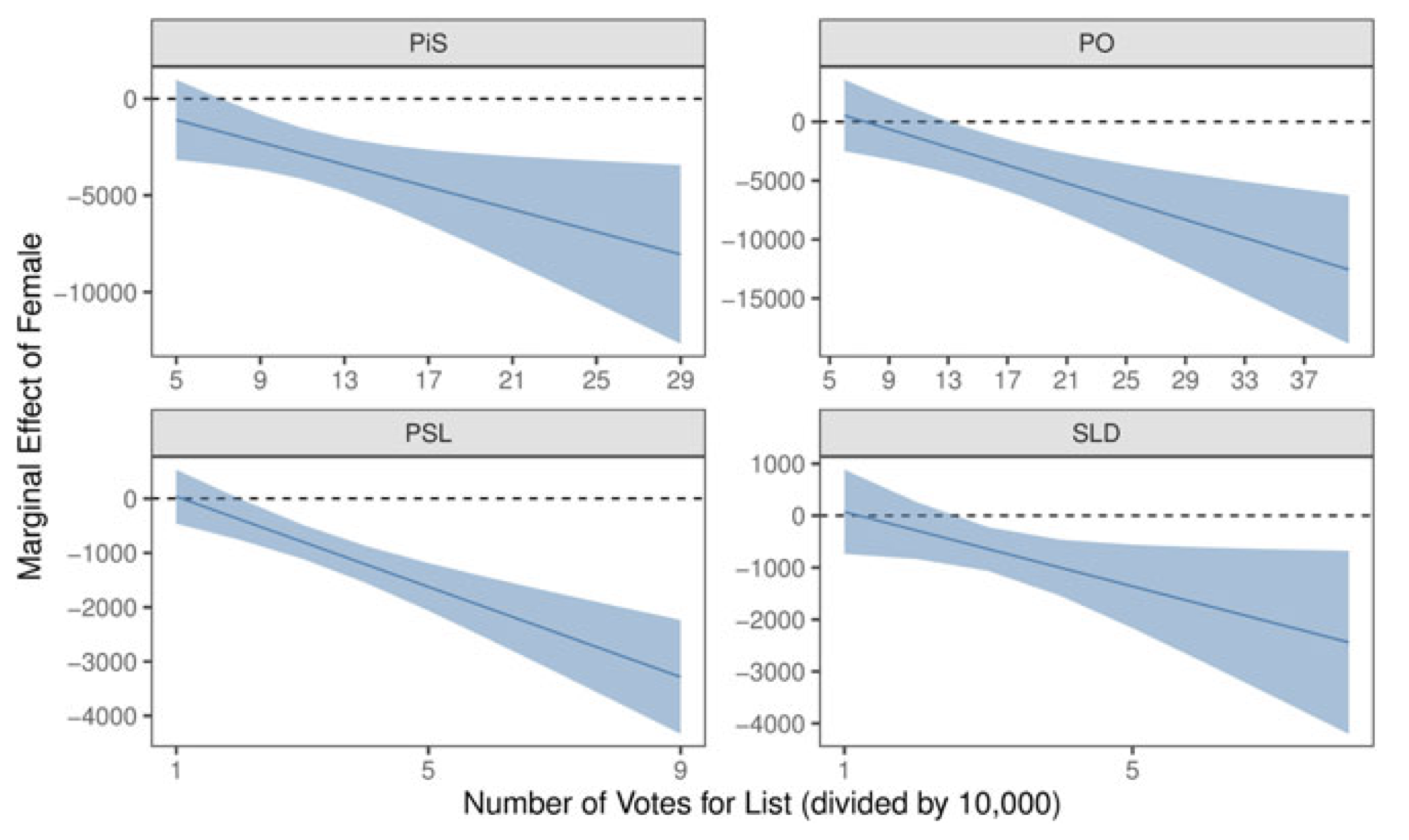
Politics and Gender · 2021
Model Dependency in the Analysis of Women's Electoral Success
with Kamil Marcinkiewicz
TL;DR
How you specify regression models has an impact on the interpretation of the results. We demonstrate this by comparing our study with a different study on gender effect in Polish open-list PR elections.
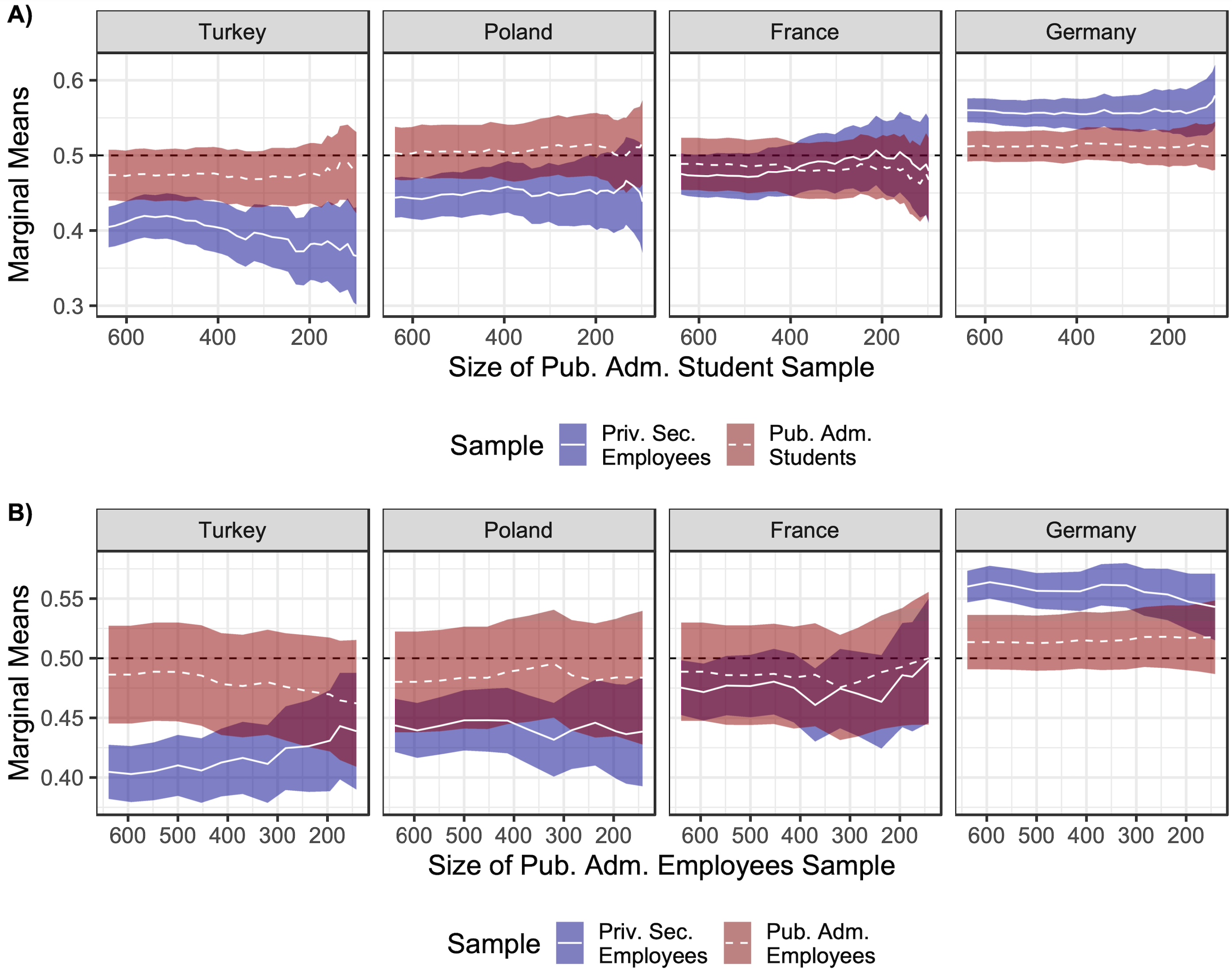
Journal of Public Administration Research and Theory · 2020
Representative Bureaucracy and Public Hiring Preferences: Evidence from a Conjoint Experiment among German Municipal Civil Servants and Private Sector Employees
with Christine Prokop and Markus Tepe
TL;DR
Civil servants show no discrimination in hiring decisions while private sector employees do.
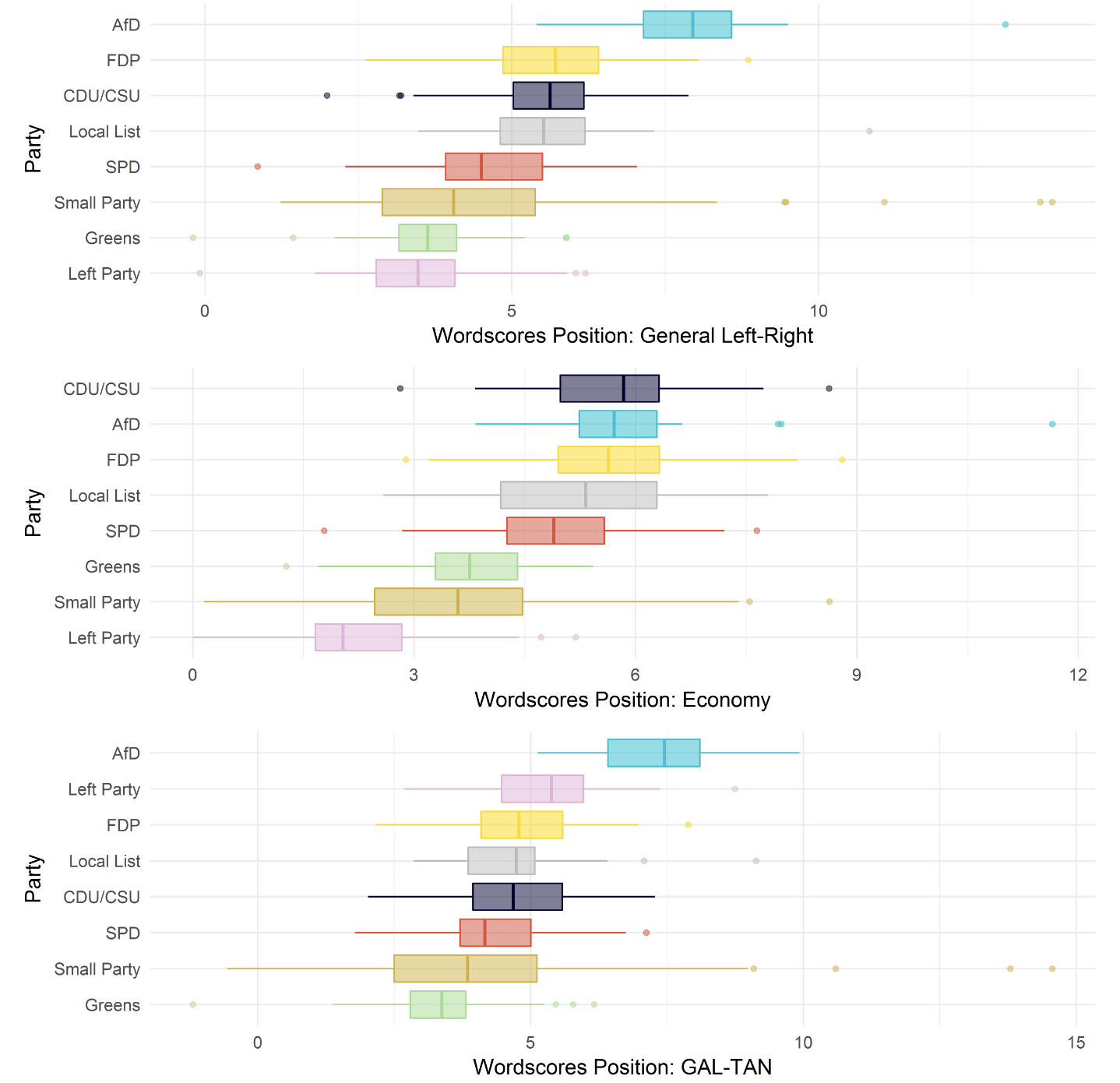
West European Politics · 2020
Conflict Dimensions and Party Positions in Multi-Level Democracies: Evidence from the Local Manifesto Project
with Martin Gross
TL;DR
We demonstrate that collecting and analyzing local party manifestos provides relevant information about party conflict at the local level.
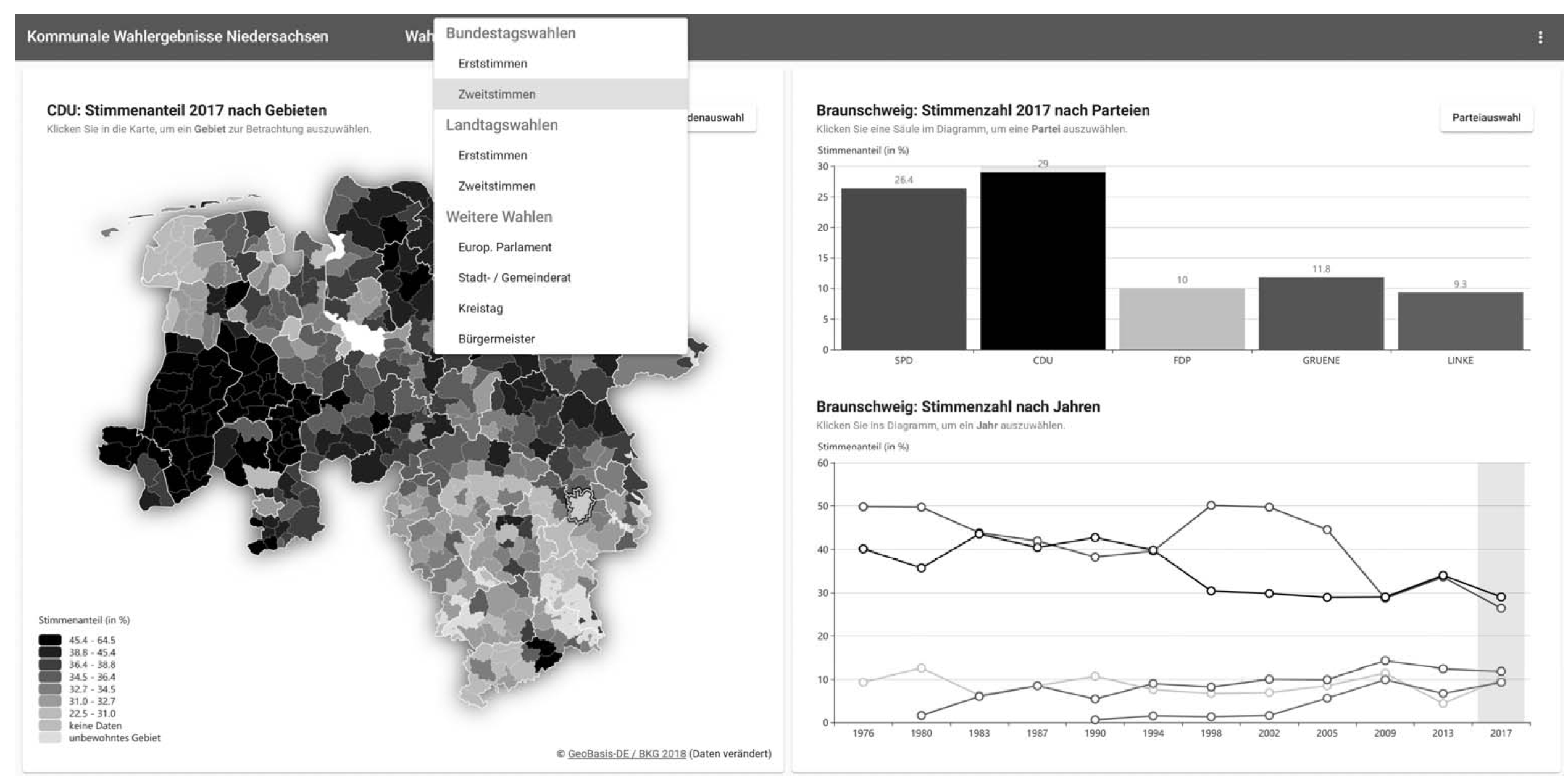
dms – der moderne staat · 2019
NieKom. Eine neue Datenbasis für die kommunale Wahl- und Policyforschung in Niedersachsen
with Christina-Marie Juen, Florian Erlbruch, and Markus Tepe
TL;DR
We present a new data base on election results at the local level in Lower Saxony.
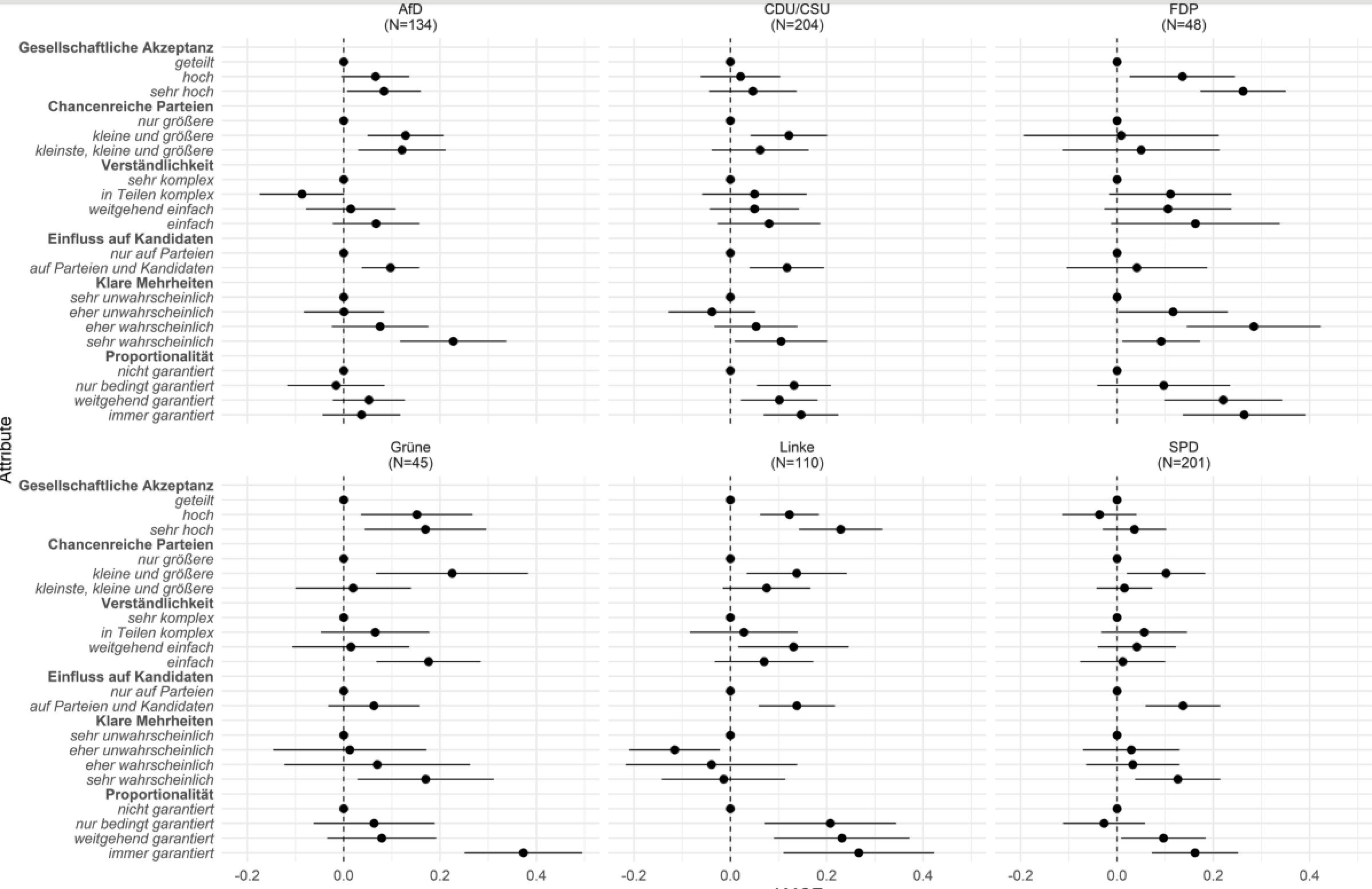
Politische Vierteljahresschrift · 2019
Welches Wahlsystem wollen die Wähler? Evidenz von einem Conjoint-Experiment
with Eric Linhart and Markus Tepe
TL;DR
Voters want an electoral system that is proportional but also leads to clear majorities and is easy to understand. Designing an electoral system that fulfills all preferences is not possible.
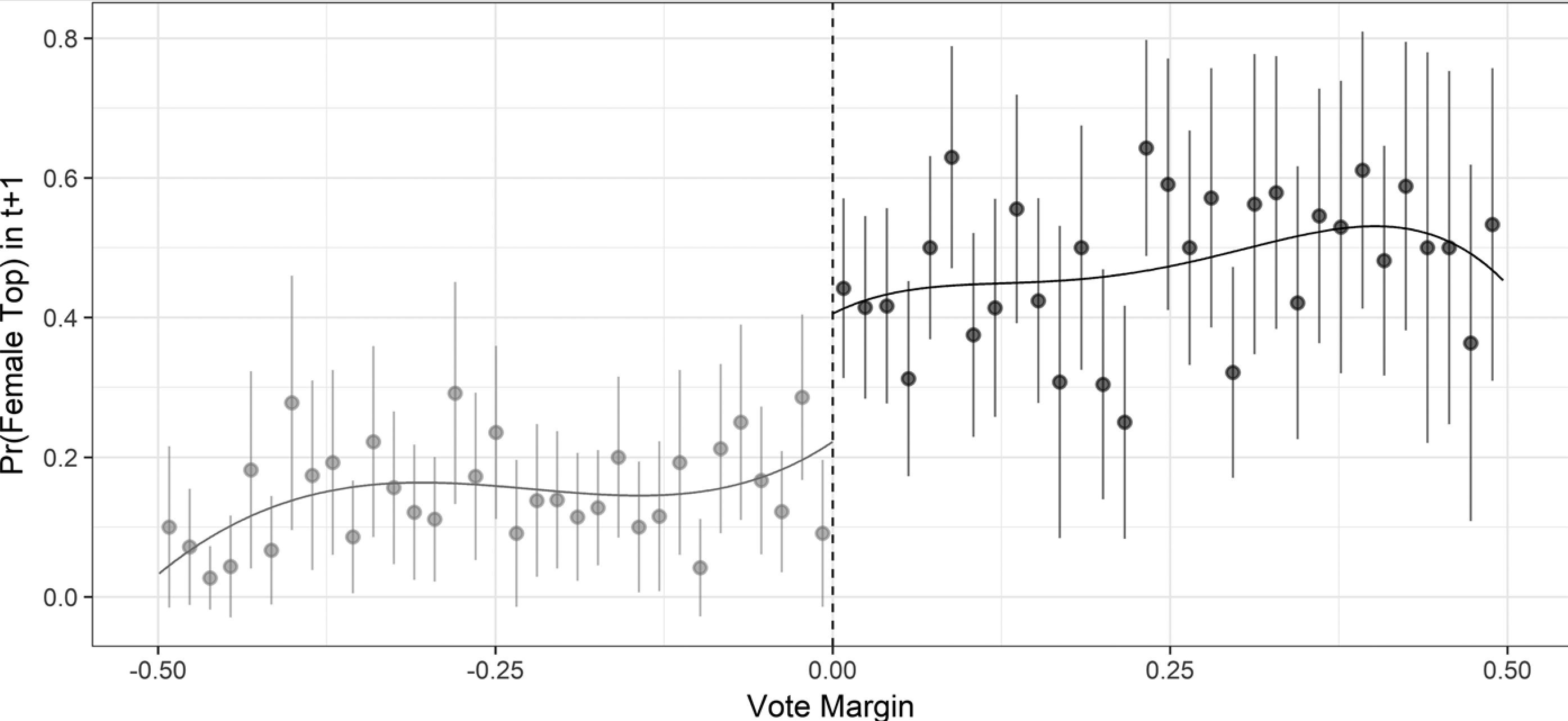
Politics and Gender · 2019
The Effect of Electing Women on Future Female Candidate Nomination Patterns: Findings from a Regression Discontinuity Design
with Kamil Marcinkiewicz and Anna Gwiazda
TL;DR
Female incumbents have a positive probability on the future election of female candidates, but no spillover effects to other lists.
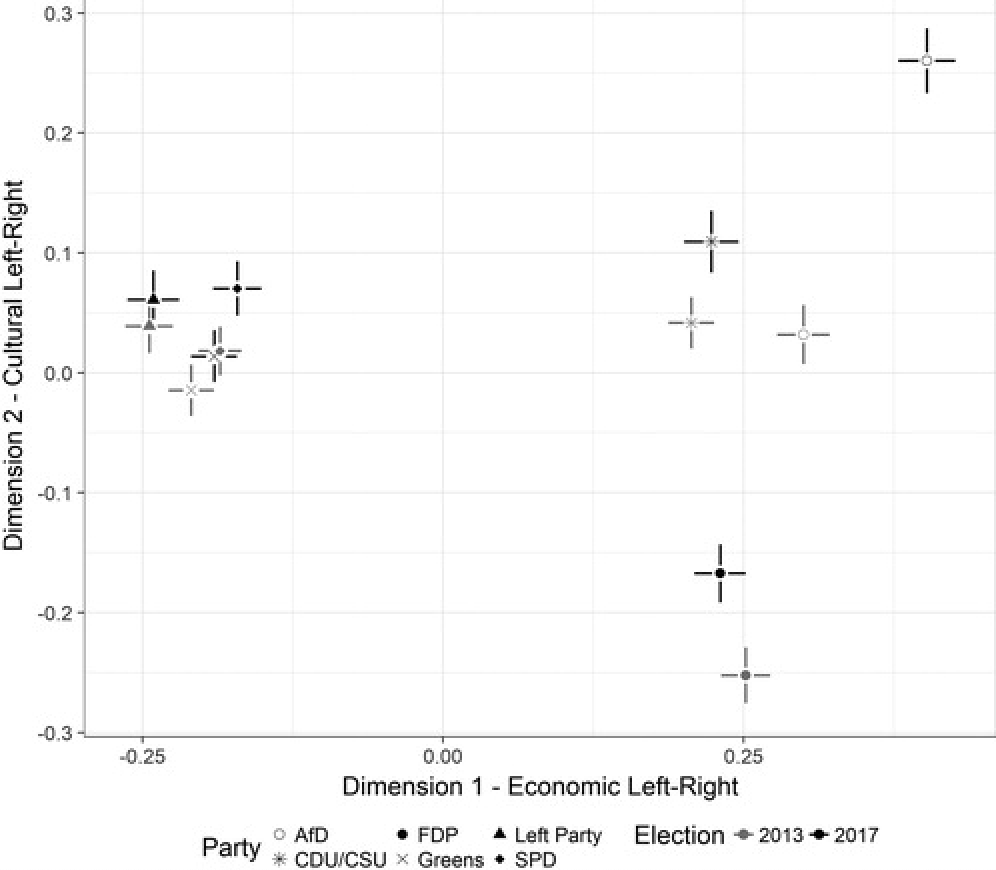
West European Politics · 2019
To Adapt or to Defend? Comparing Position Shifts among Bundestag Candidates between 2013 and 2017
with Sebastian Schneider and Markus Tepe
TL;DR
After the success of the AfD in Germany, parliamentary candidates became more conservative on cultural issues but not on economic issues.
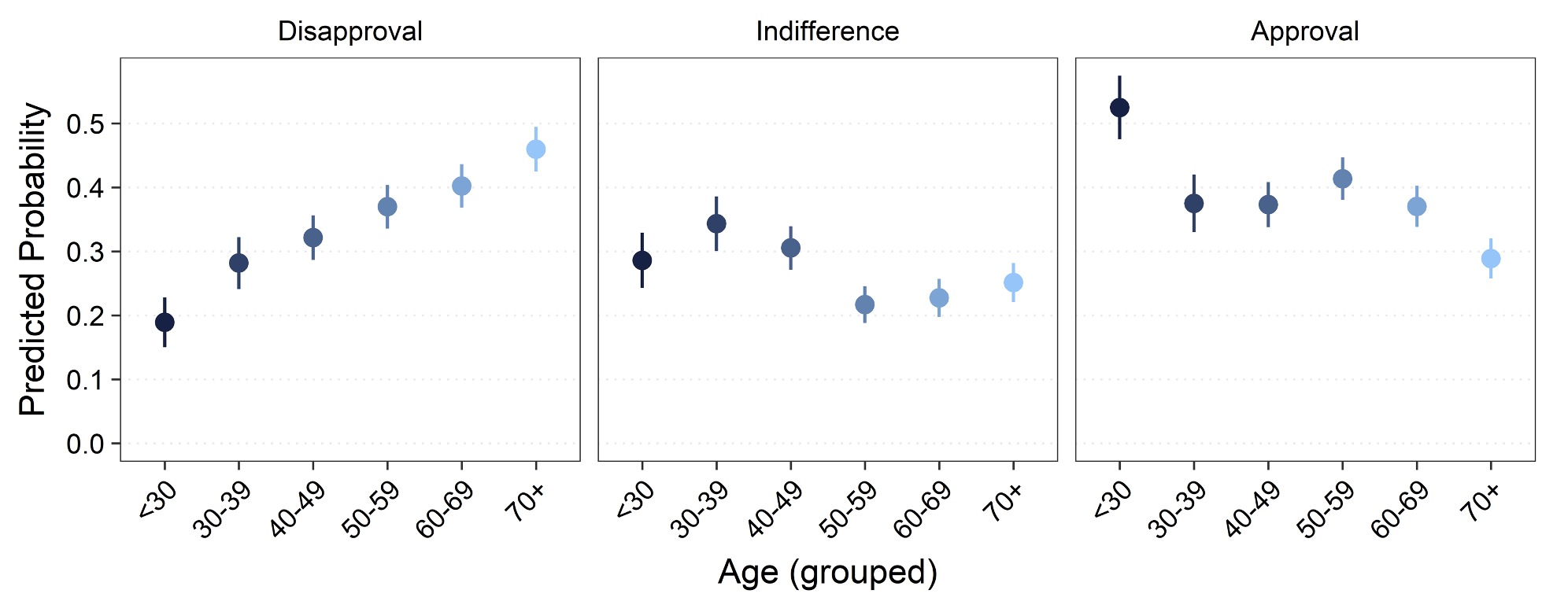
Journal of Elections, Public Opinion and Parties · 2019
Do voters really prefer more choice? Determinants of Support for Personalised Electoral Systems
with Stefan Müller
TL;DR
Voters opposed the new personalized electoral law in Hamburg. Especially voters with little political interest and older voters are opposed to it.
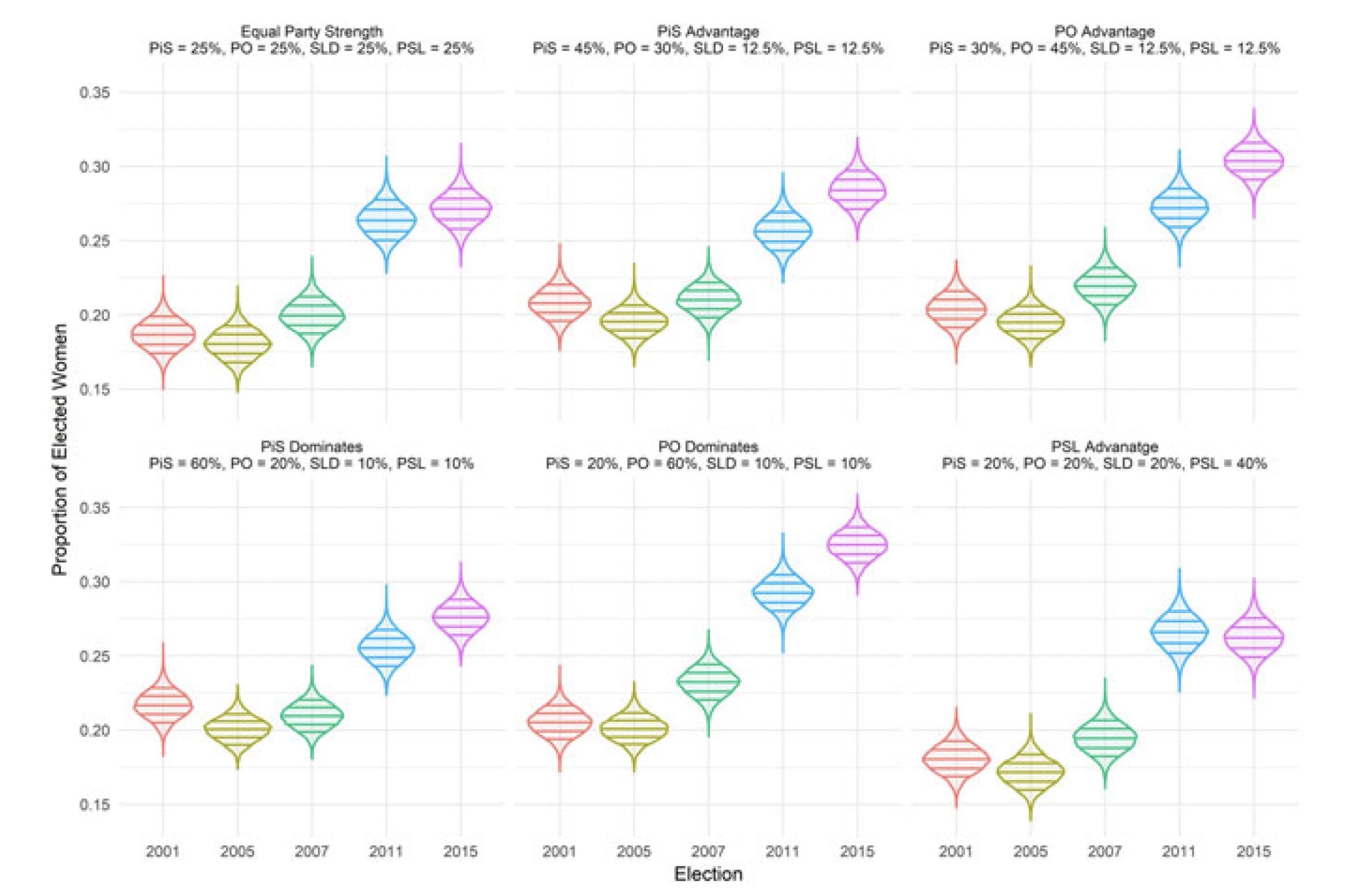
Politics and Gender · 2019
Ineffective and Counterproductive? Evaluating the Impact of Gender Quotas in Open-List PR Systems
with Kamil Marcinkiewicz
TL;DR
We provide counterevidence to the claim that gender quotas in open-list PR systems have a counterproductive effect. While these quotas are not very effective, they still had a positive effect on women's political representation.
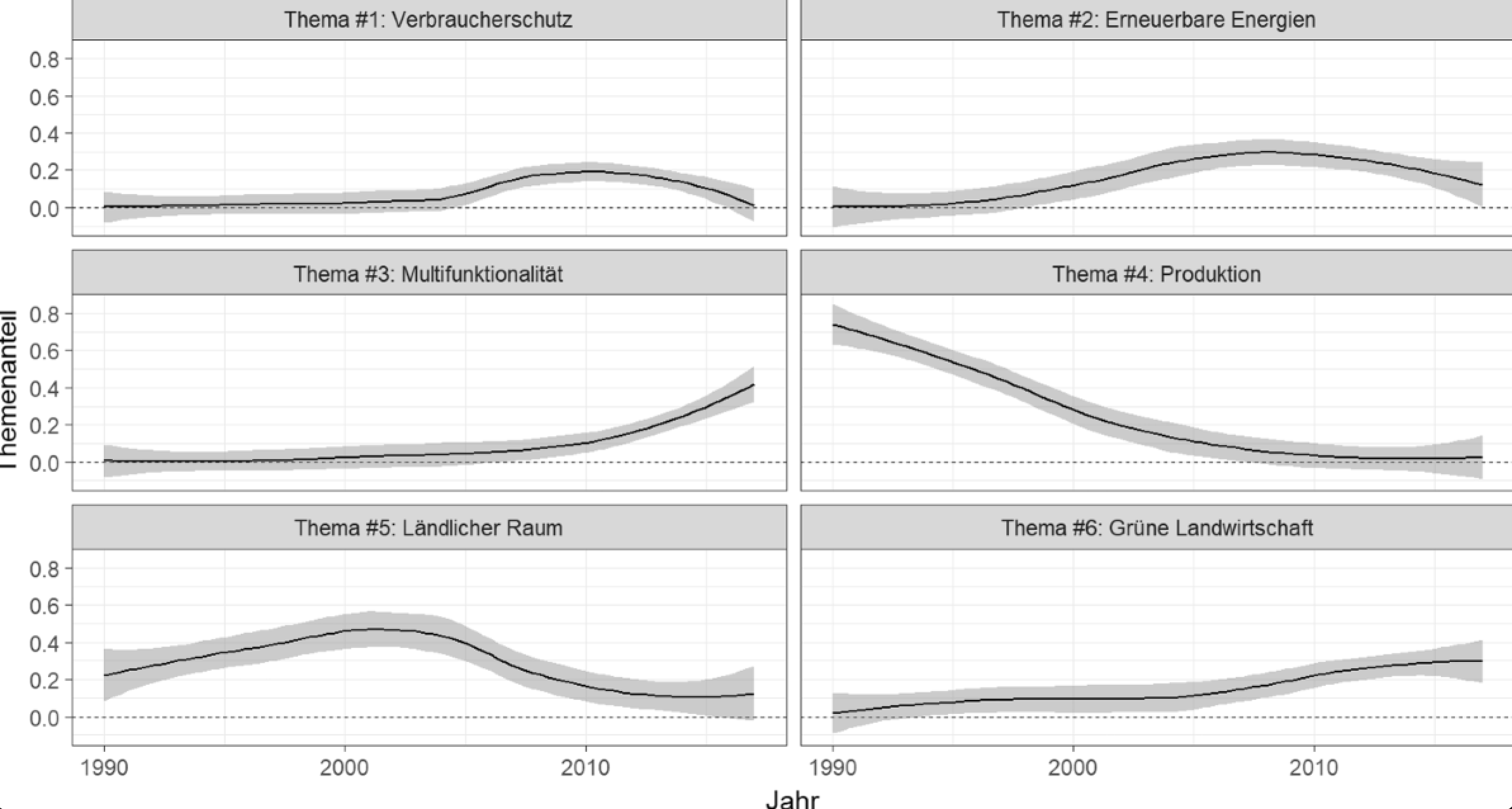
Zeitschrift für Vergleichende Politikwissenschaft · 2018
Politikpositionen von Regierungen im Ländervergleich. Heterogenität am Beispiel der Agrarpolitik
with Stefan Ewert and Jochen Müller
TL;DR
We demonstrate that party branches in different federal states take different positions in agricultural politics.
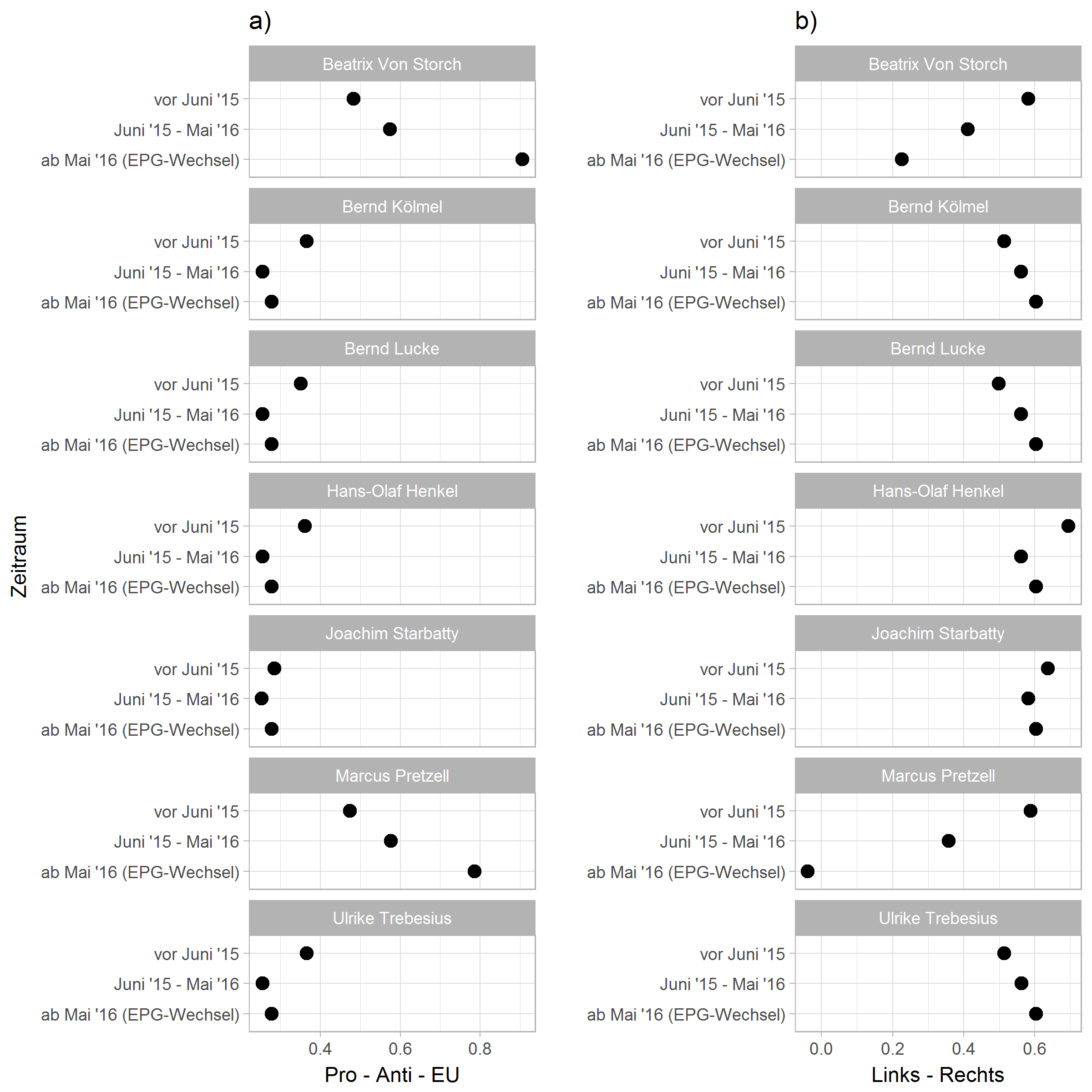
Zeitschrift für Vergleichende Politikwissenschaft · 2018
Die AfD im achten Europäischen Parlament: Eine Analyse der Positionsverschiebung basierend auf namentlichen Abstimmungen von 2014-2016
with Marcel Lewandowsky
TL;DR
We demonstrate how voting patterns of the AfD MEPs changed in response to the radicalization of the AfD as well as switching of the EPGs.
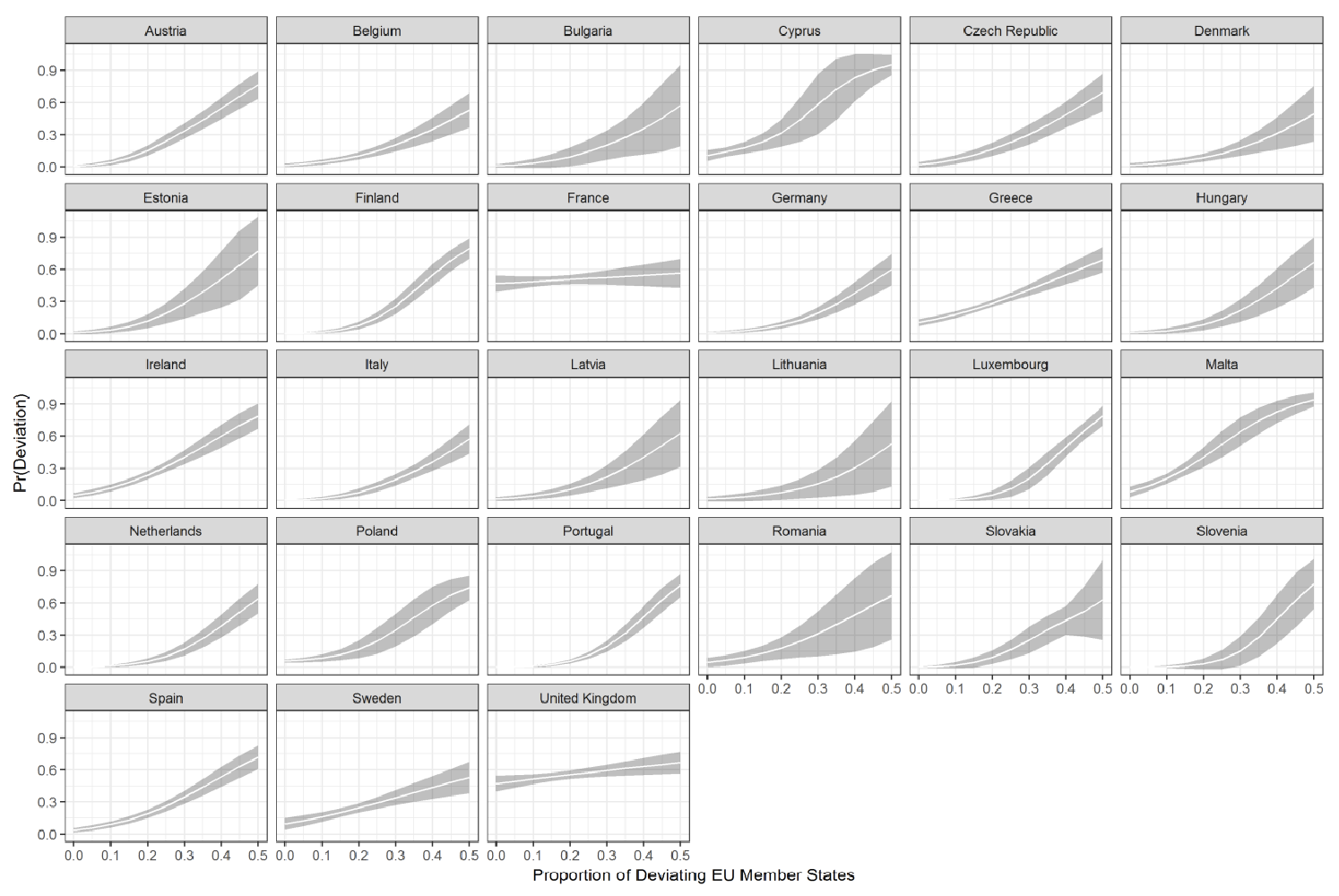
The British Journal of Politics and International Relations · 2018
One Voice or Different Choice? Vote Defection of EU Member States in the United Nations General Assembly
with Nicolas Burmester
TL;DR
France and the UK are the most frequent defectors in the voting behavior of EU member states.
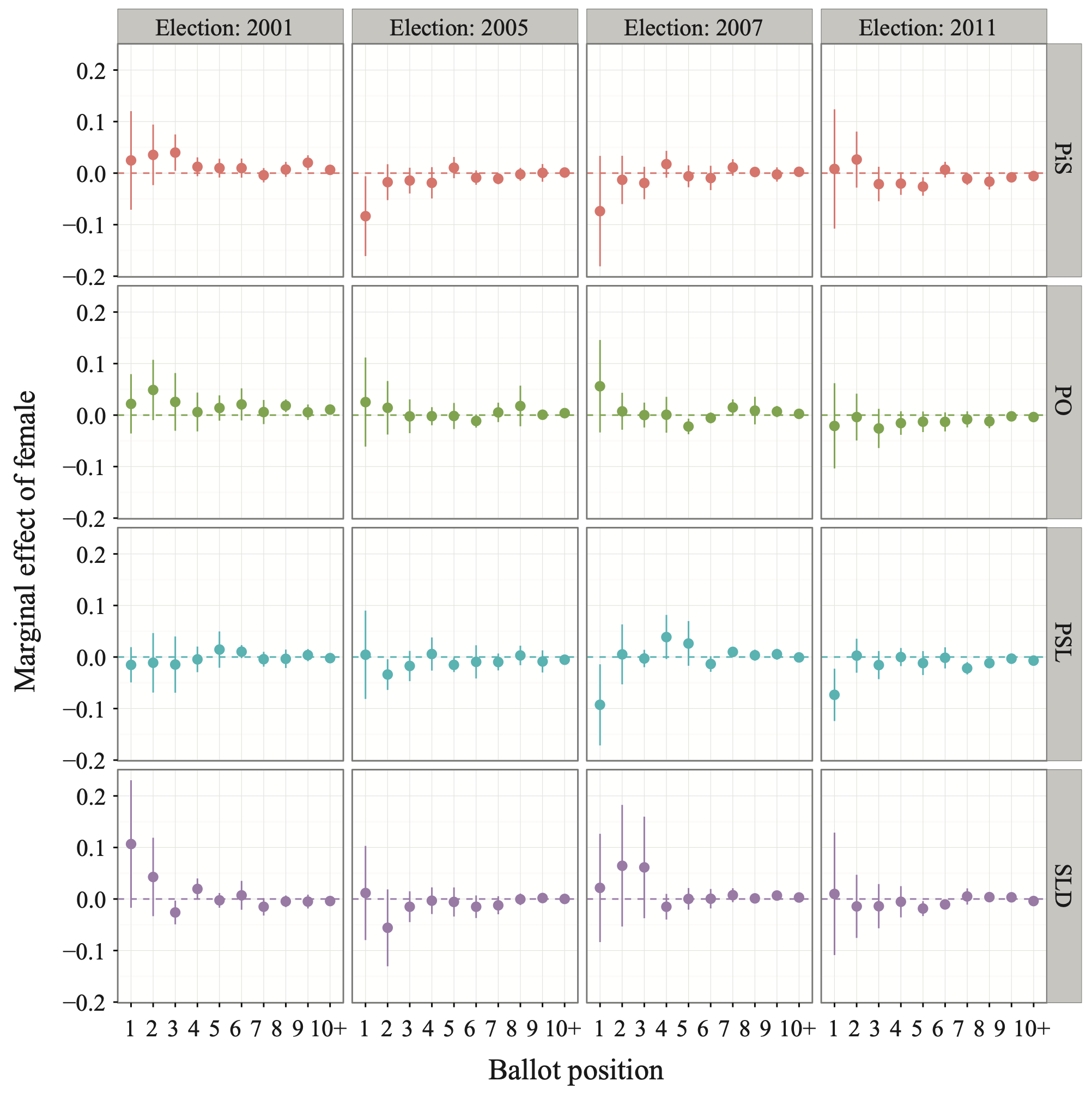
Party Politics · 2018
Are populist parties fostering women's political representation in Poland? A comment on Kostadinova & Mikulska
with Kamil Marcinkiewicz
TL;DR
Despite different claims, populist radical-right parties do not foster the representation of women.
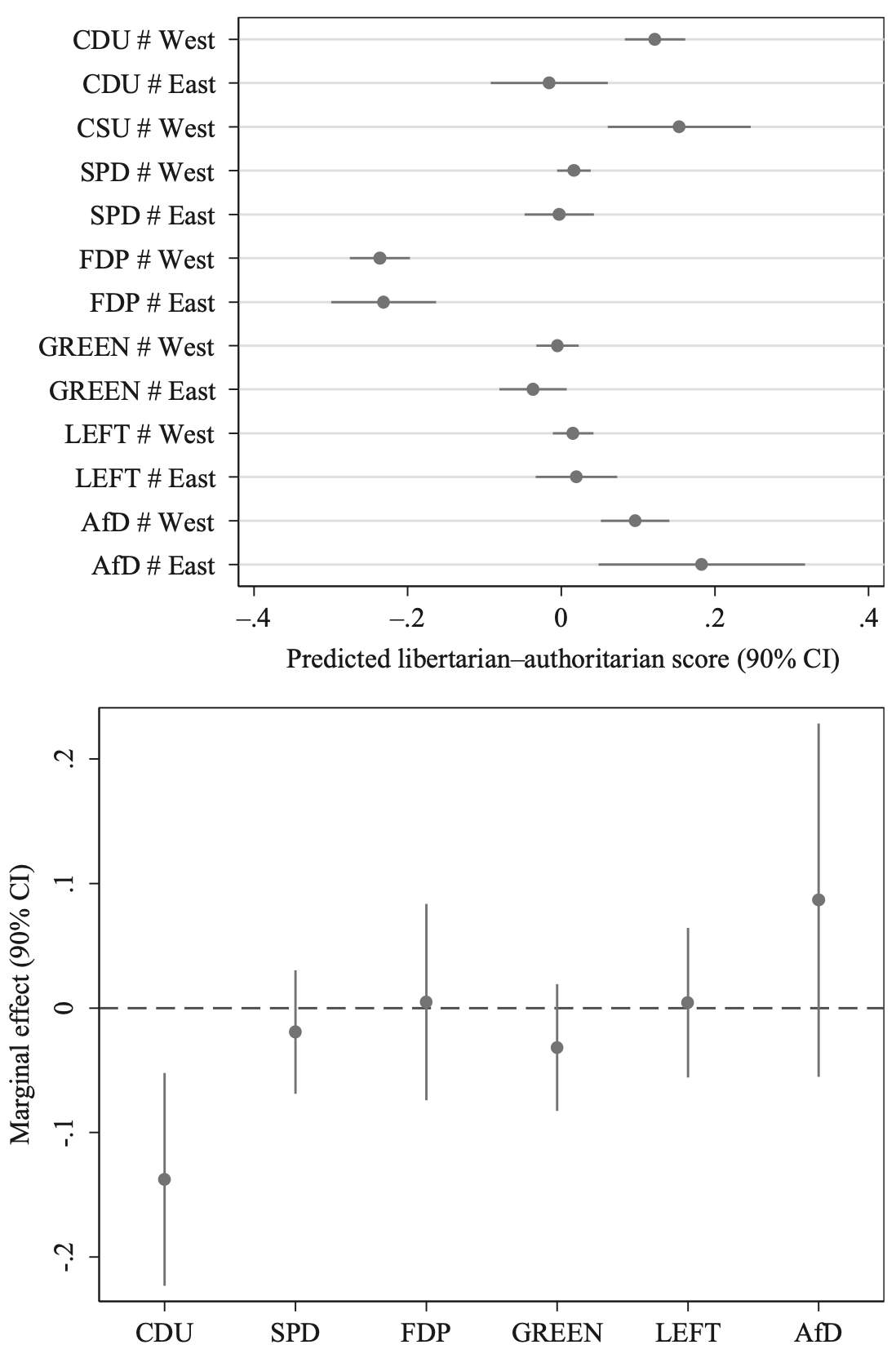
Party Politics · 2017
Ideological Alternative? Analyzing AfD Candidates' Ideal Points via Blackbox Scaling
with Sebastian Schneider and Markus Tepe
TL;DR
This is one of the first studies on the position of AfD candidates during the time when the AfD was not yet fully radical-right.
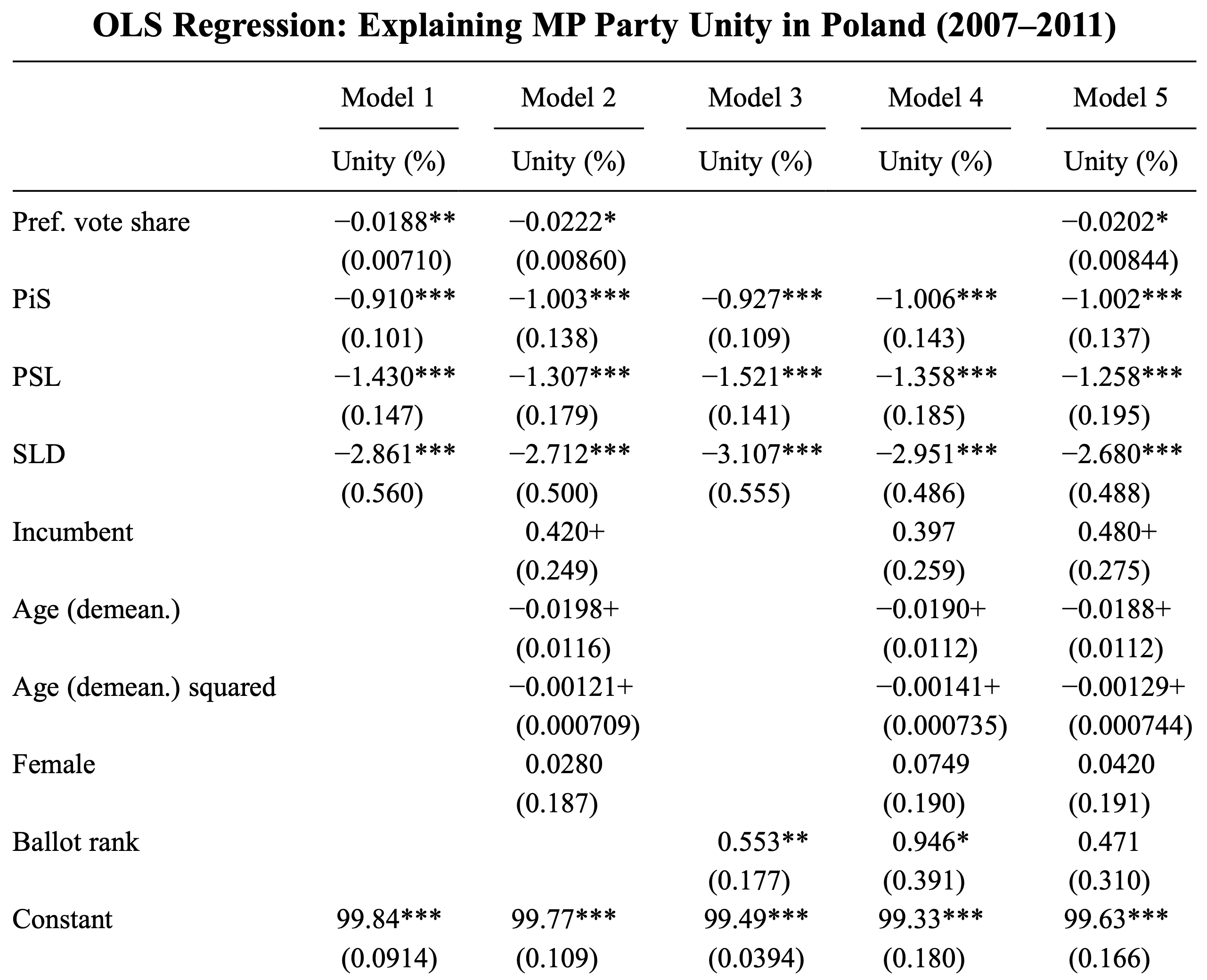
East European Politics and Societies · 2016
The Effects of Electoral Rules on Parliamentary Behavior: A Comparative Analysis of Poland and the Czech Republic
with Kamil Marcinkiewicz and Mary Stegmaier
TL;DR
Electoral systems impact which and how strongly MPs are loyal to their party.
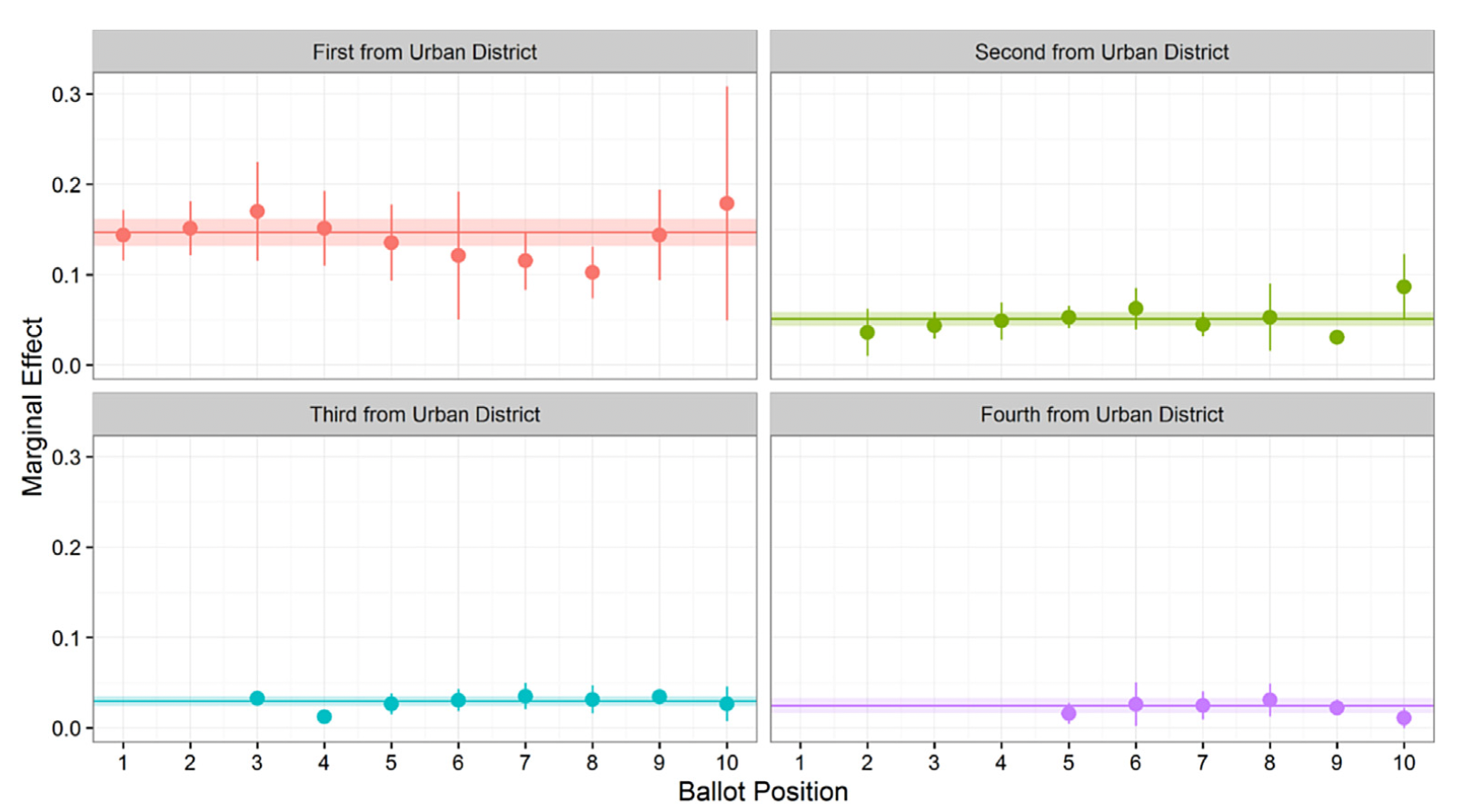
Electoral Studies · 2016
Voting for Locals: Voters' Information Processing Strategies in Open-List PR Systems
TL;DR
Voters strongly rely on localness cues when selecting candidates. Therefore, candidates from regions with more voters have an advantage.
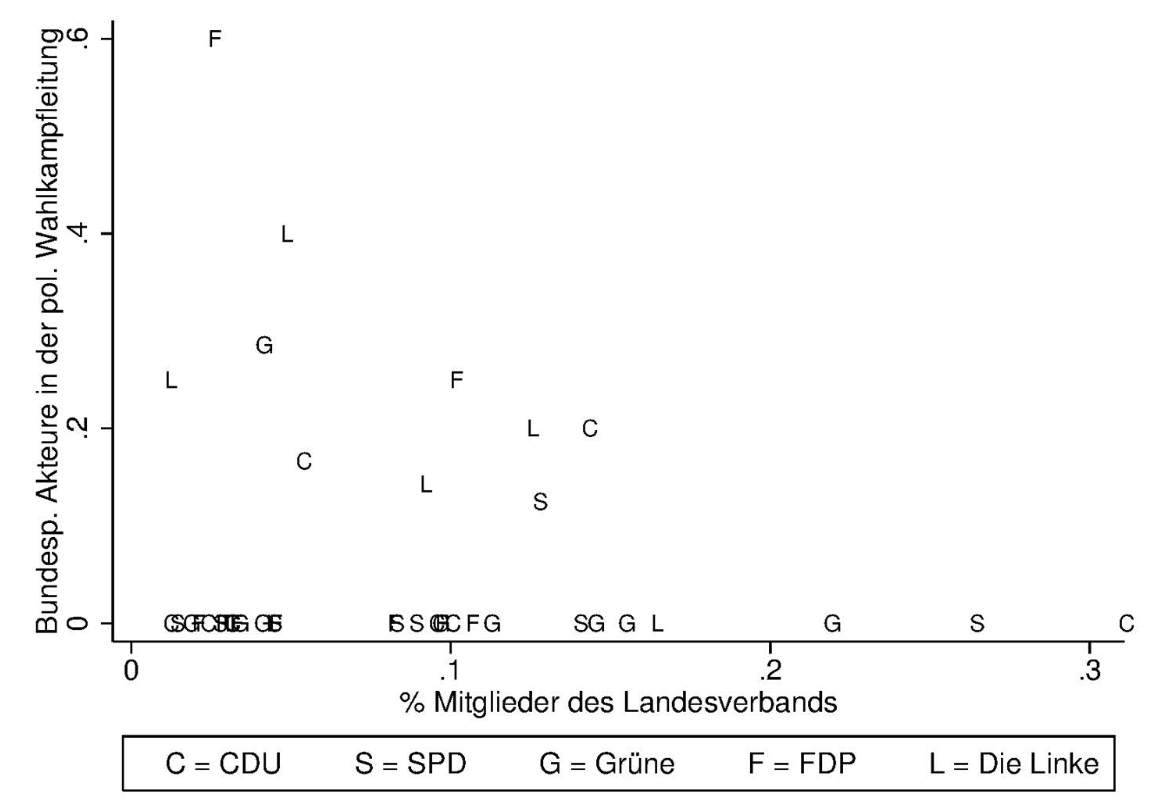
Zeitschrift für Politikwissenschaft · 2014
'All by myself' oder 'With a little help from my friends'? Die Integration der Bundespartei in die Wahlkampforganisation auf Landesebene
with Marcel Lewandowsky
TL;DR
Smaller party branches in federal states get more support from the national party branch in regional elections.
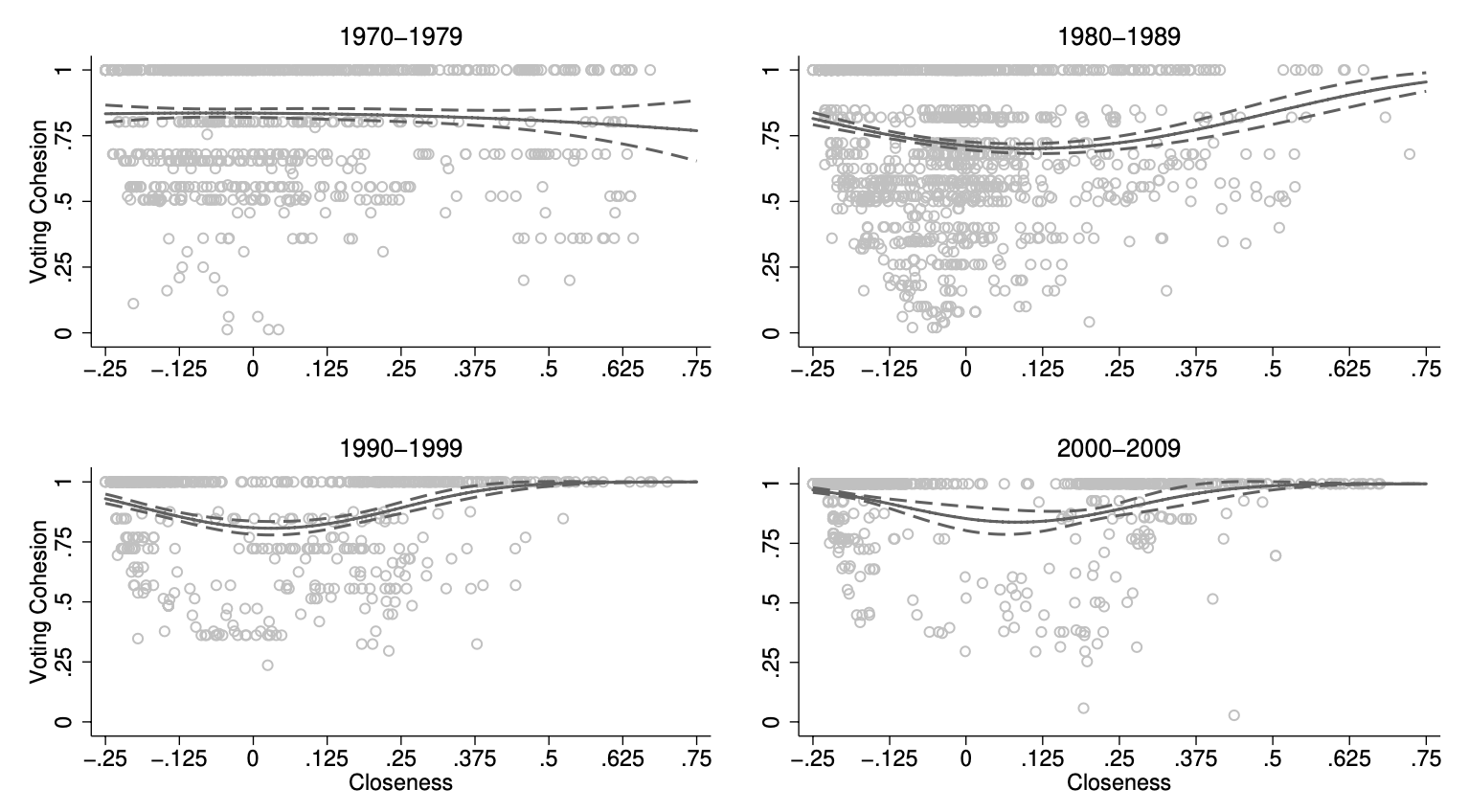
Journal of European Public Policy · 2014
Reassessing the European Union in the United Nations General Assembly
with Nicolas Burmester
TL;DR
The EU is the only regional organization in the UNGA which shows more cohesive voting patterns, when the adoption of a resolution is close.
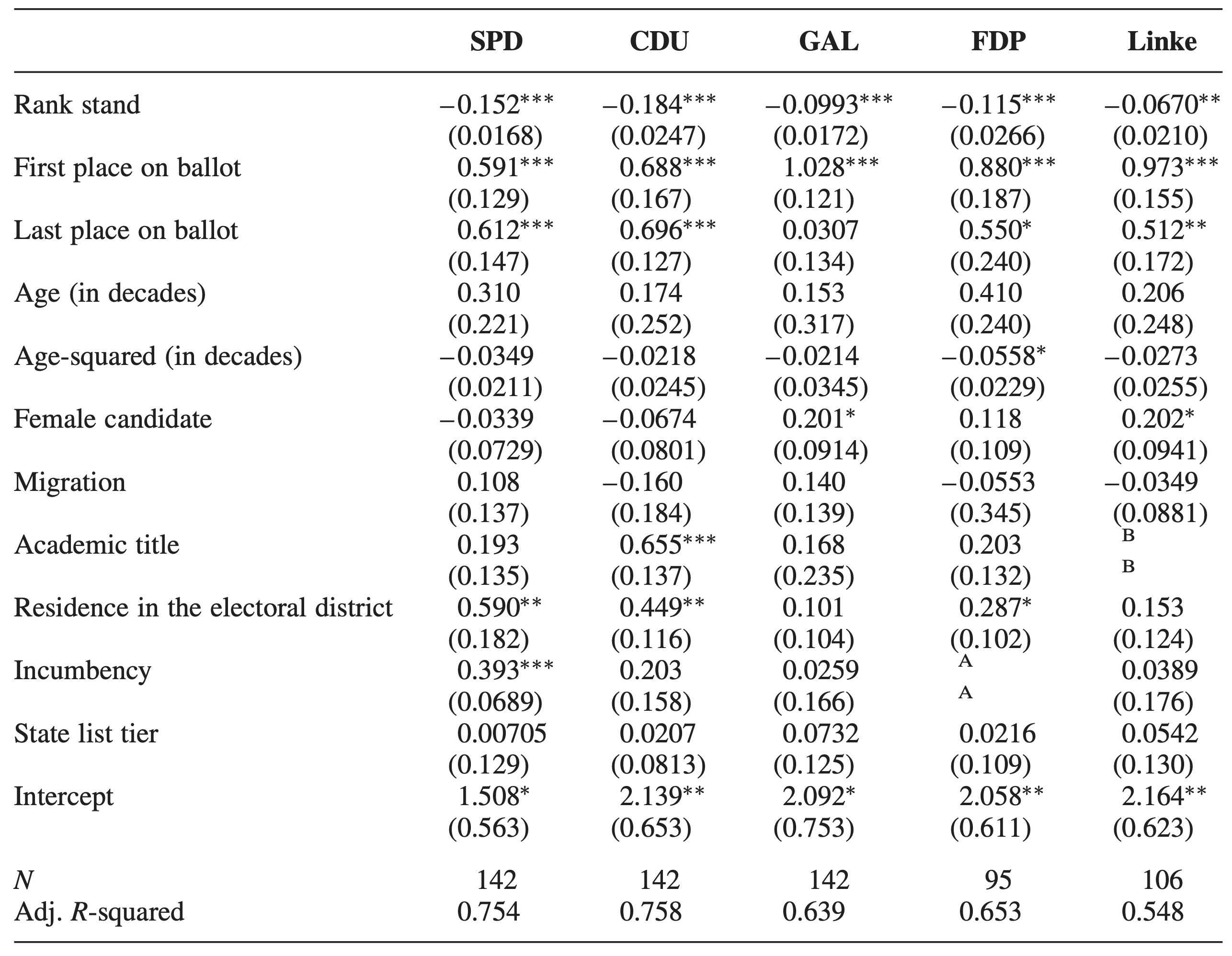
German Politics · 2014
When there's no Easy Way out: Electoral Law Reform and Ballot Position Effects in the 2011 Hamburg State Elections
with Kamil Marcinkiewicz
TL;DR
The new electoral law in Hamburg was supposed to make candidate choice more sophisticated. Instead, most voters probably used simple short-cuts such as the ballot position.
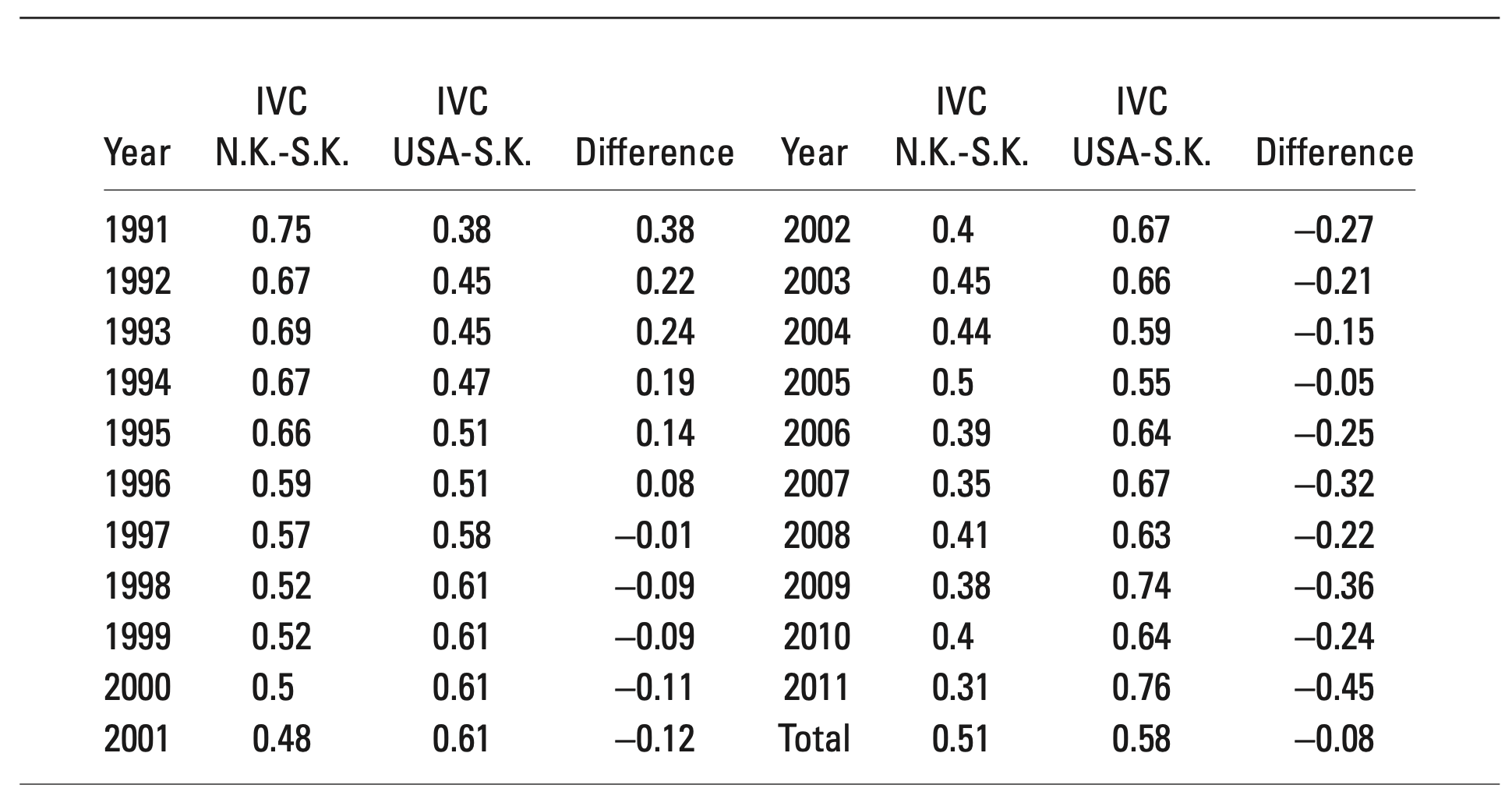
The British Journal of Politics & International Relations · 2013
The Unsolved Puzzle: Pacific Asia's Voting Cohesion in the United Nations General Assembly – A Response to Peter Ferdinand
with Nicolas Burmester
TL;DR
ASEAN has a high voting cohesion in the UNGA but this is not particularly unique.
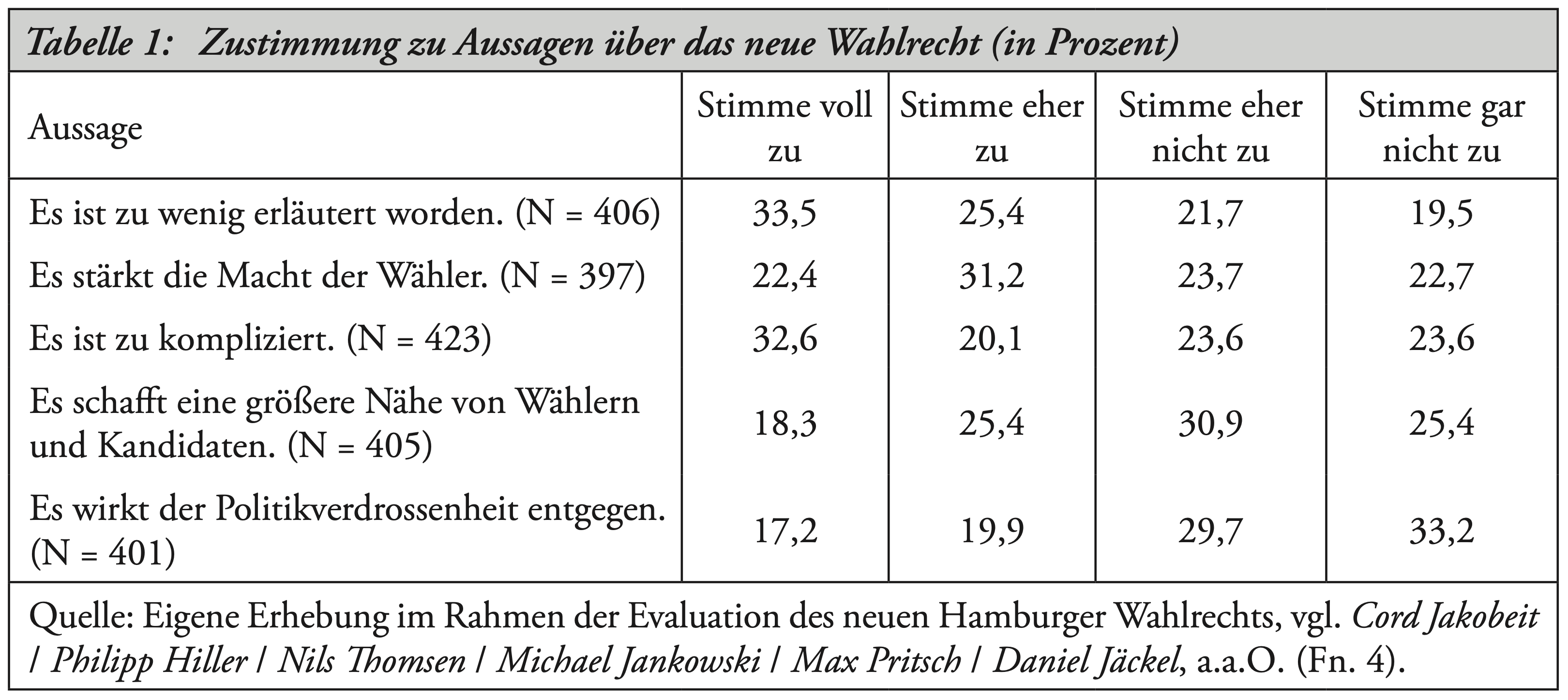
Zeitschrift für Parlamentsfragen · 2013
The agony of choice? On voter turnout and the new electoral law in the city-state of Hamburg
with Cord Jakobeit, Philipp Hiller und Nils Thomsen